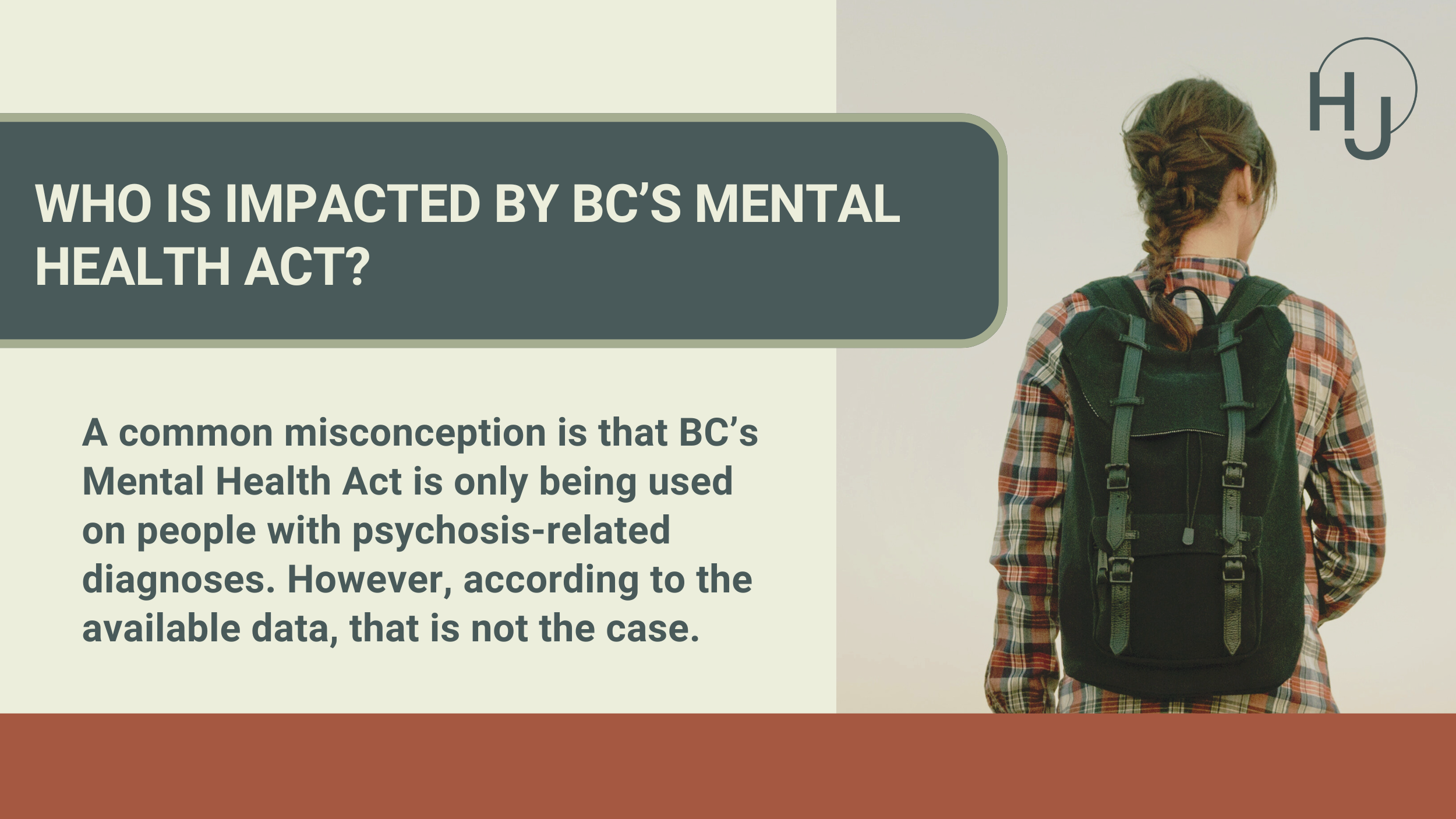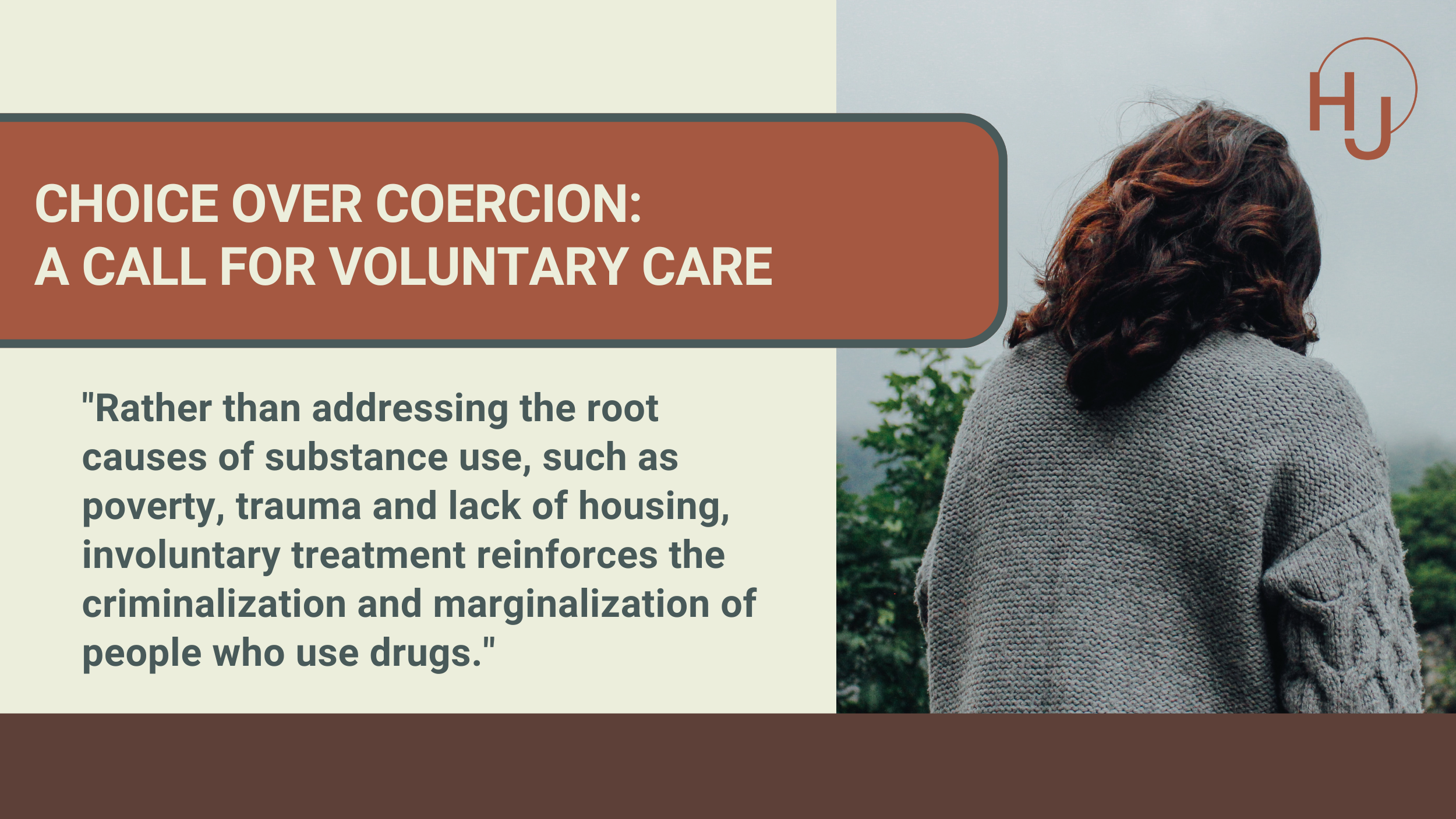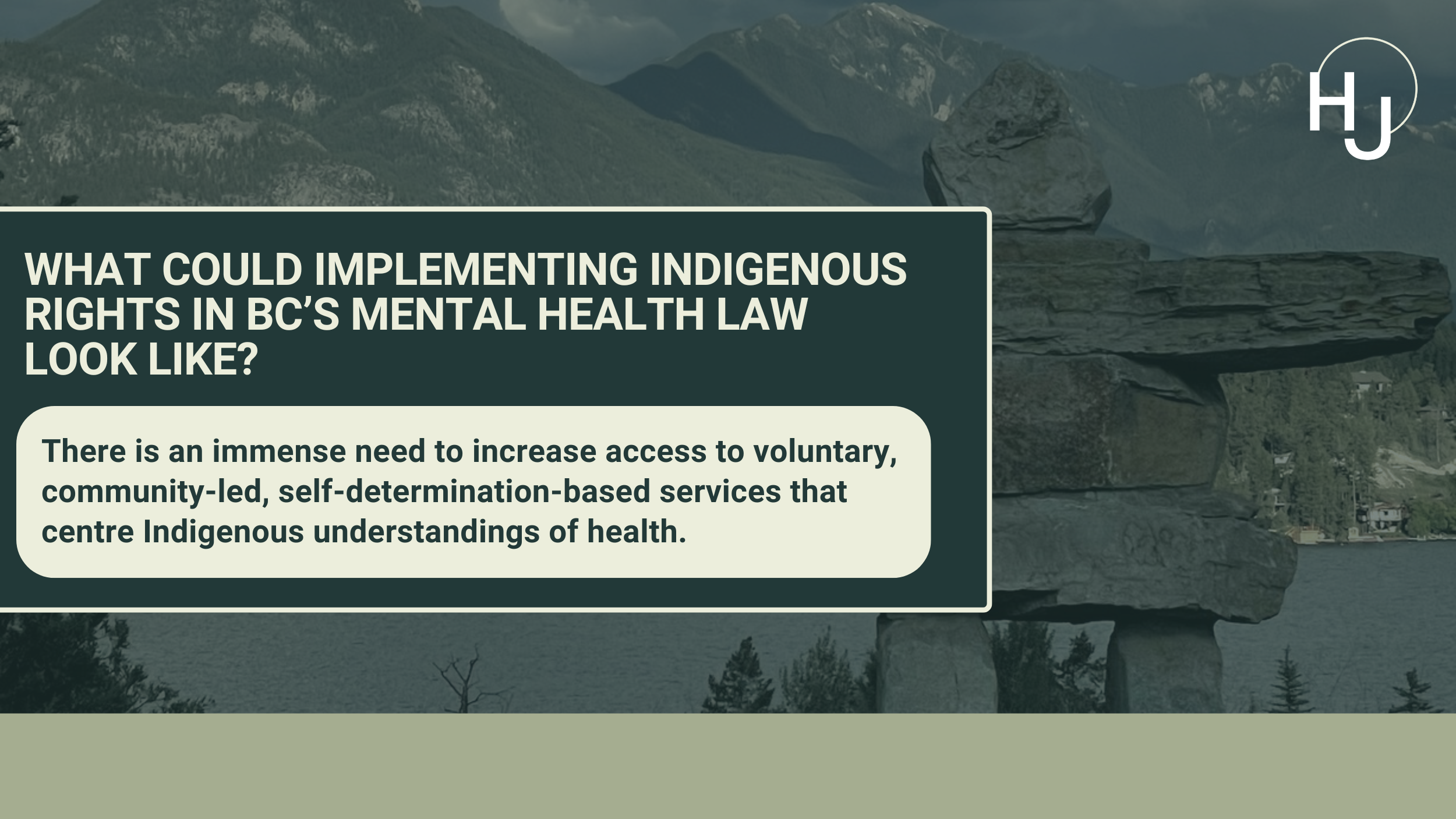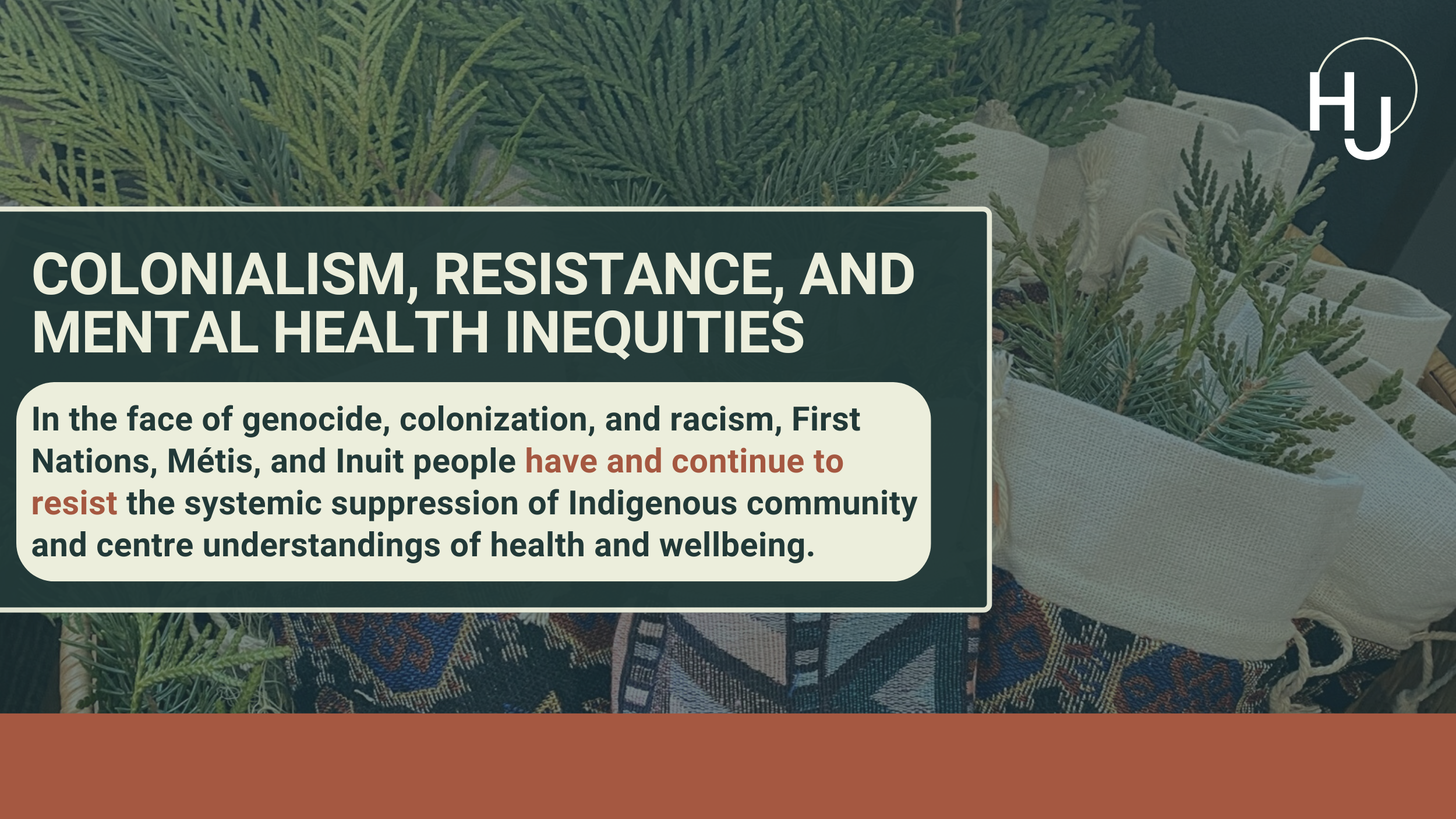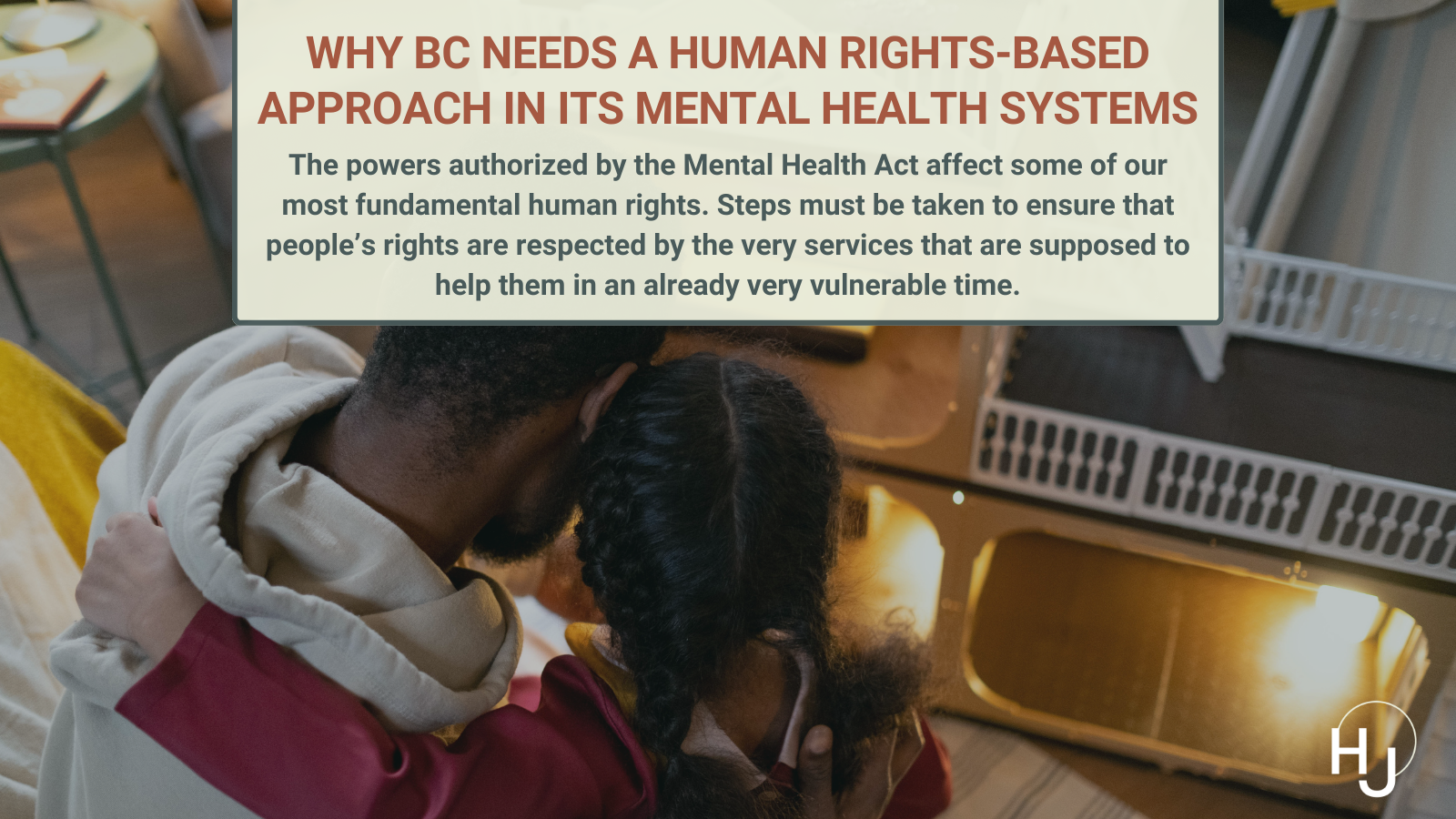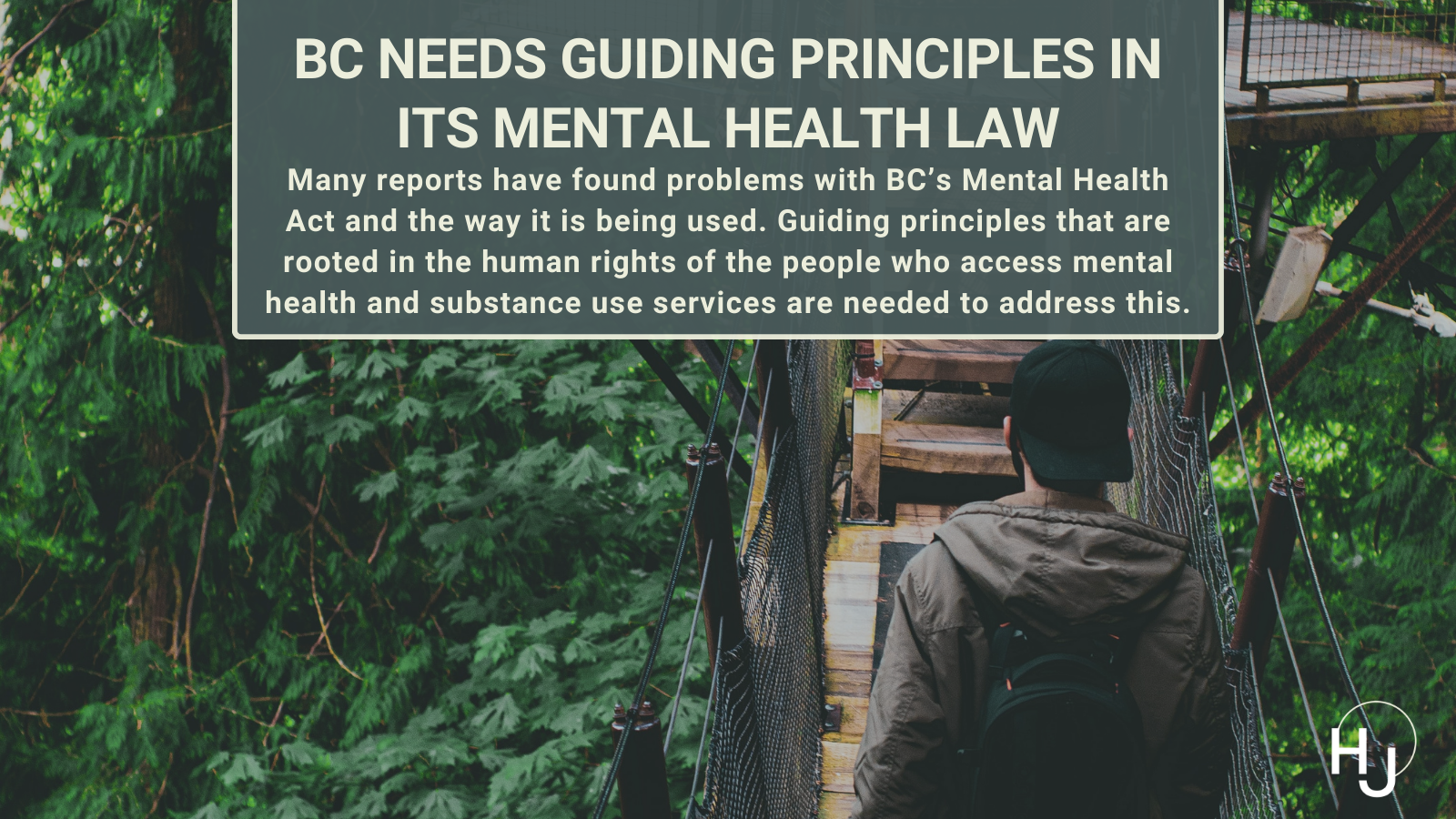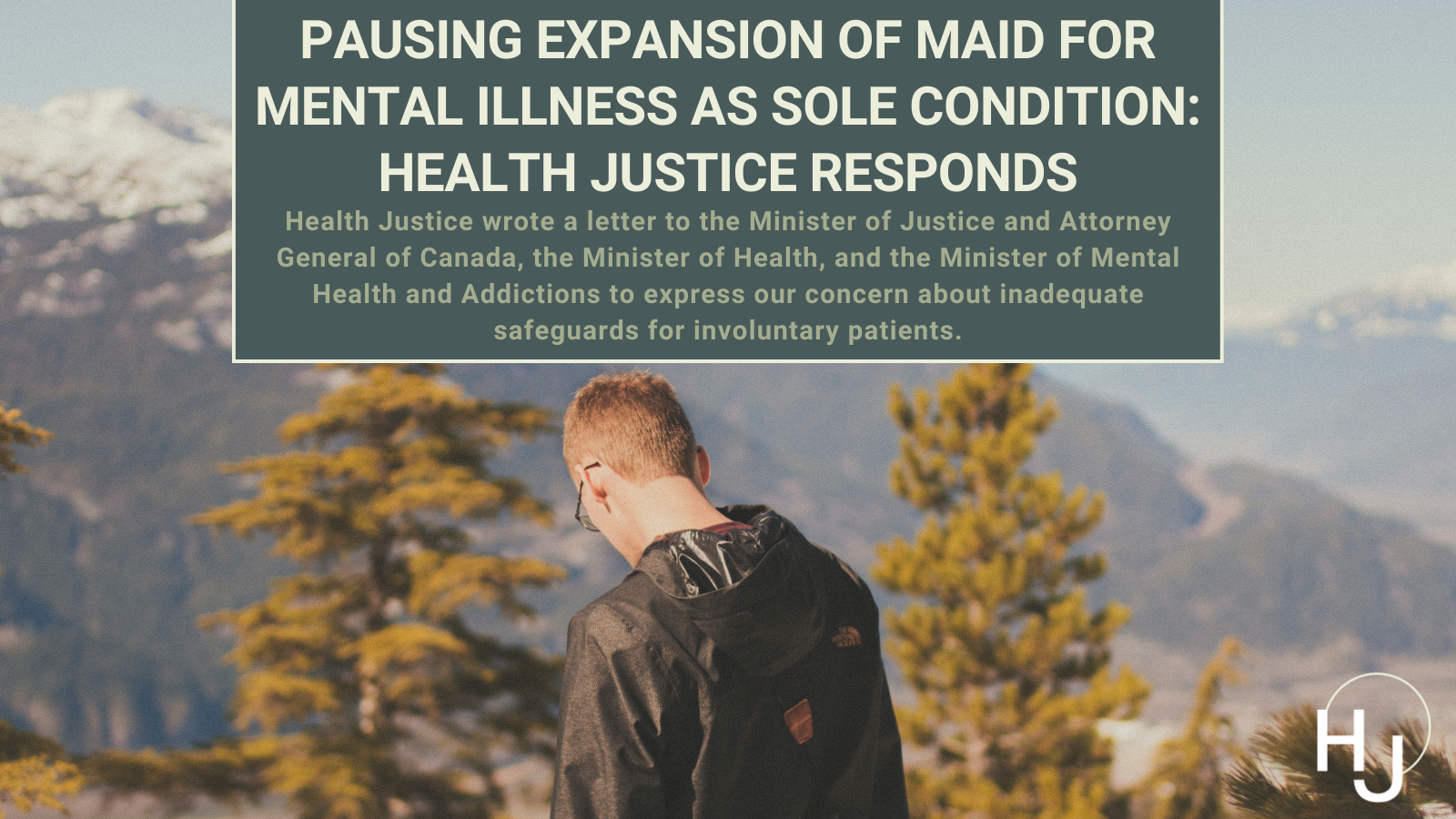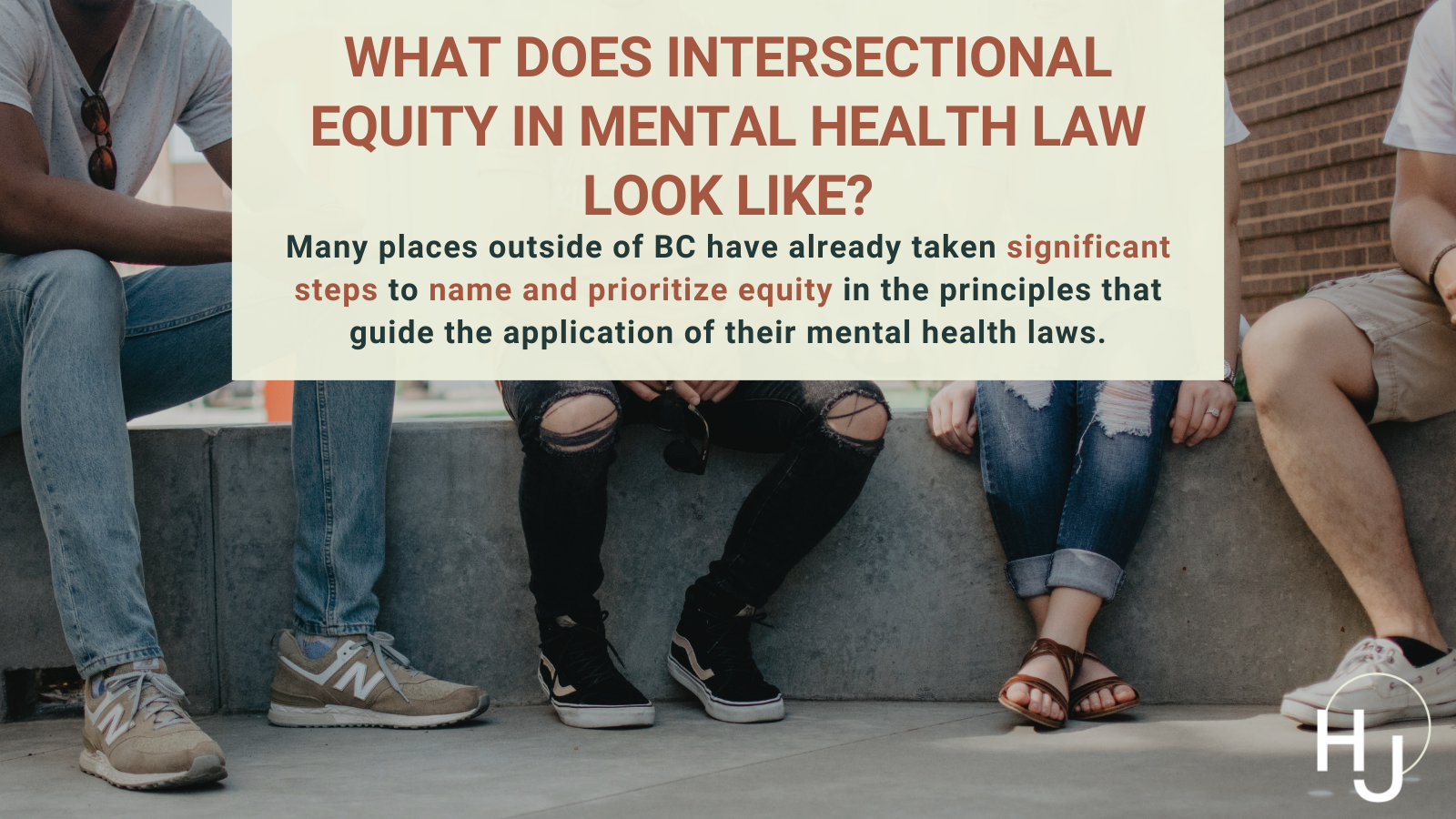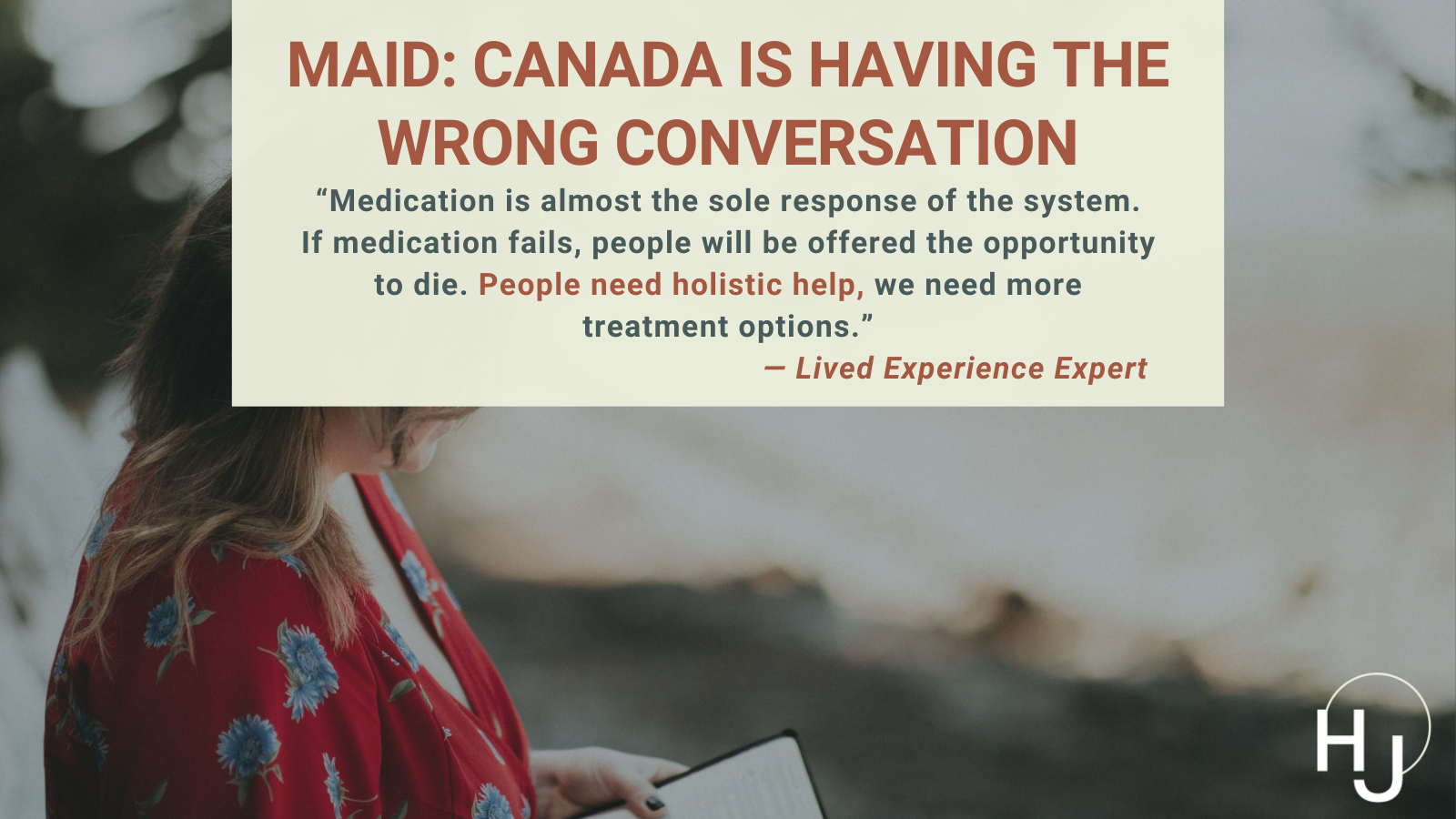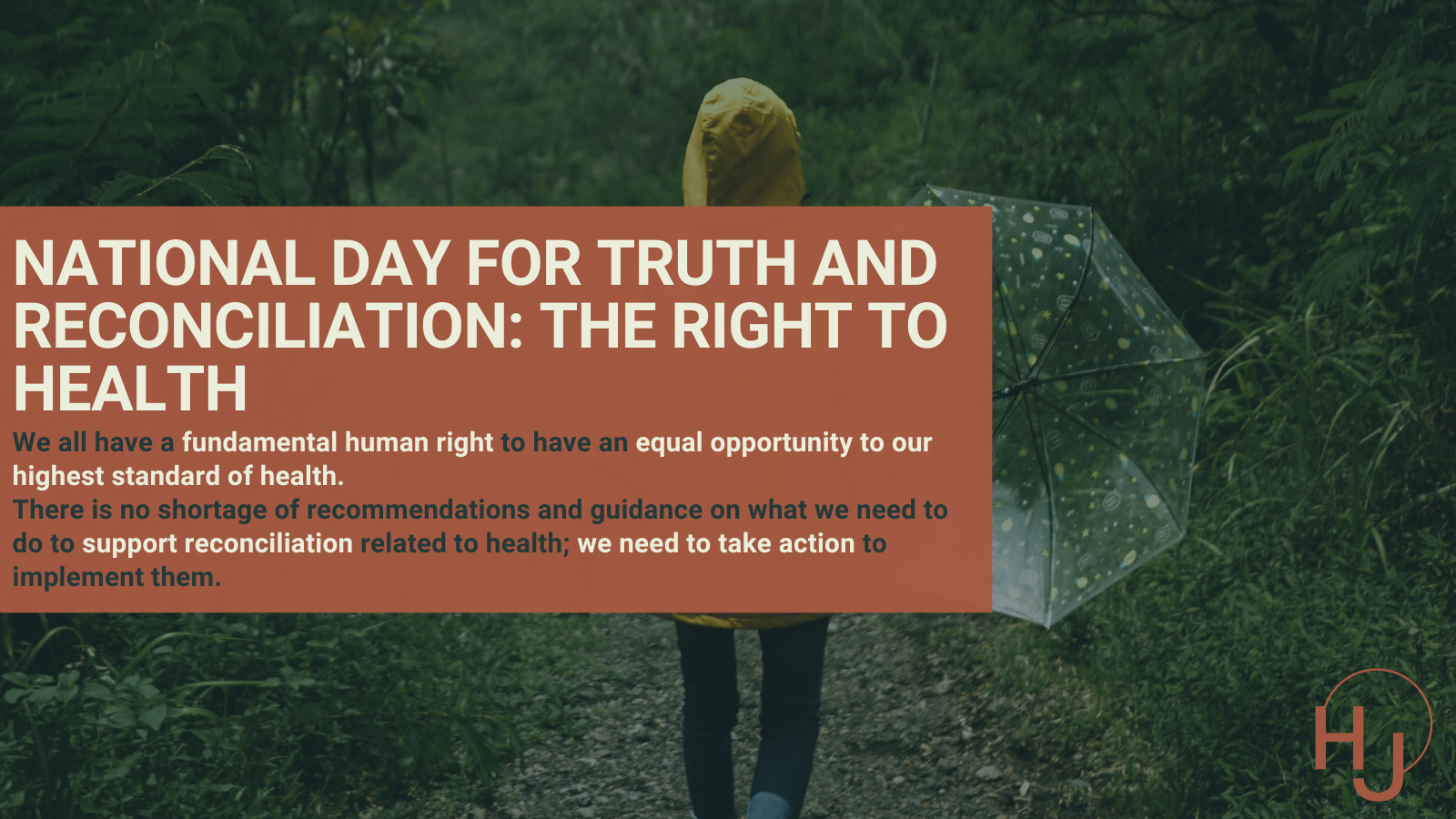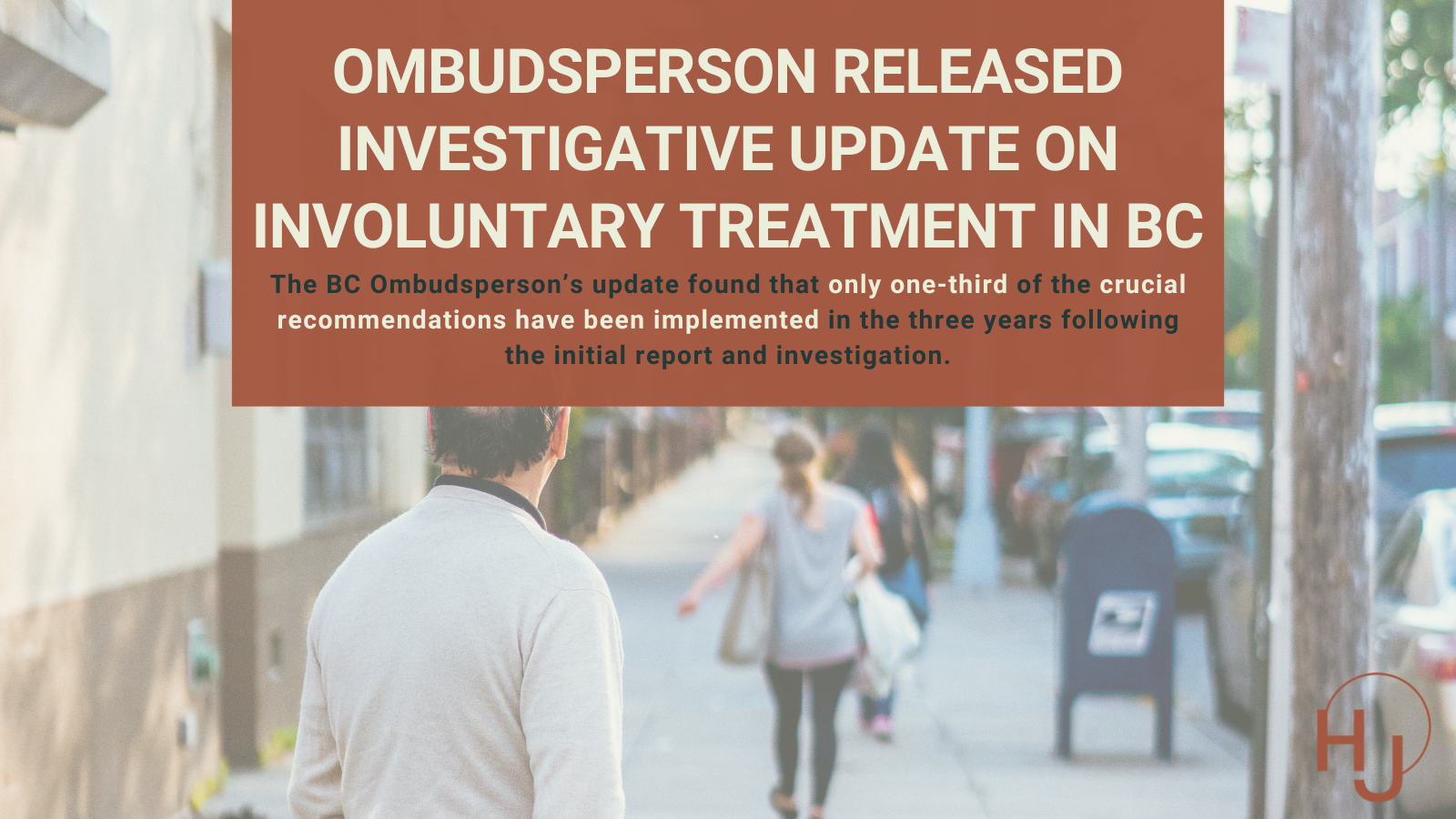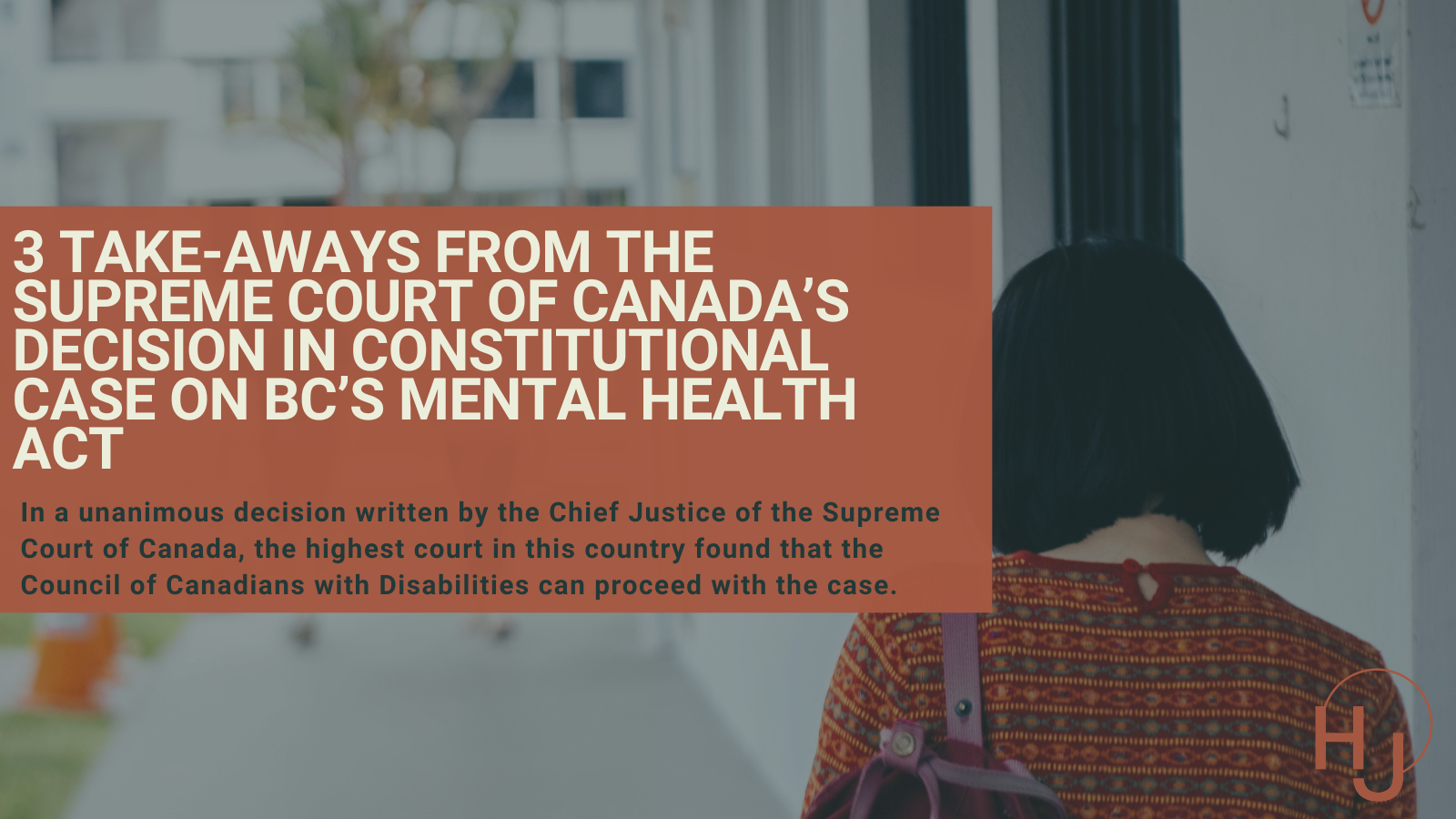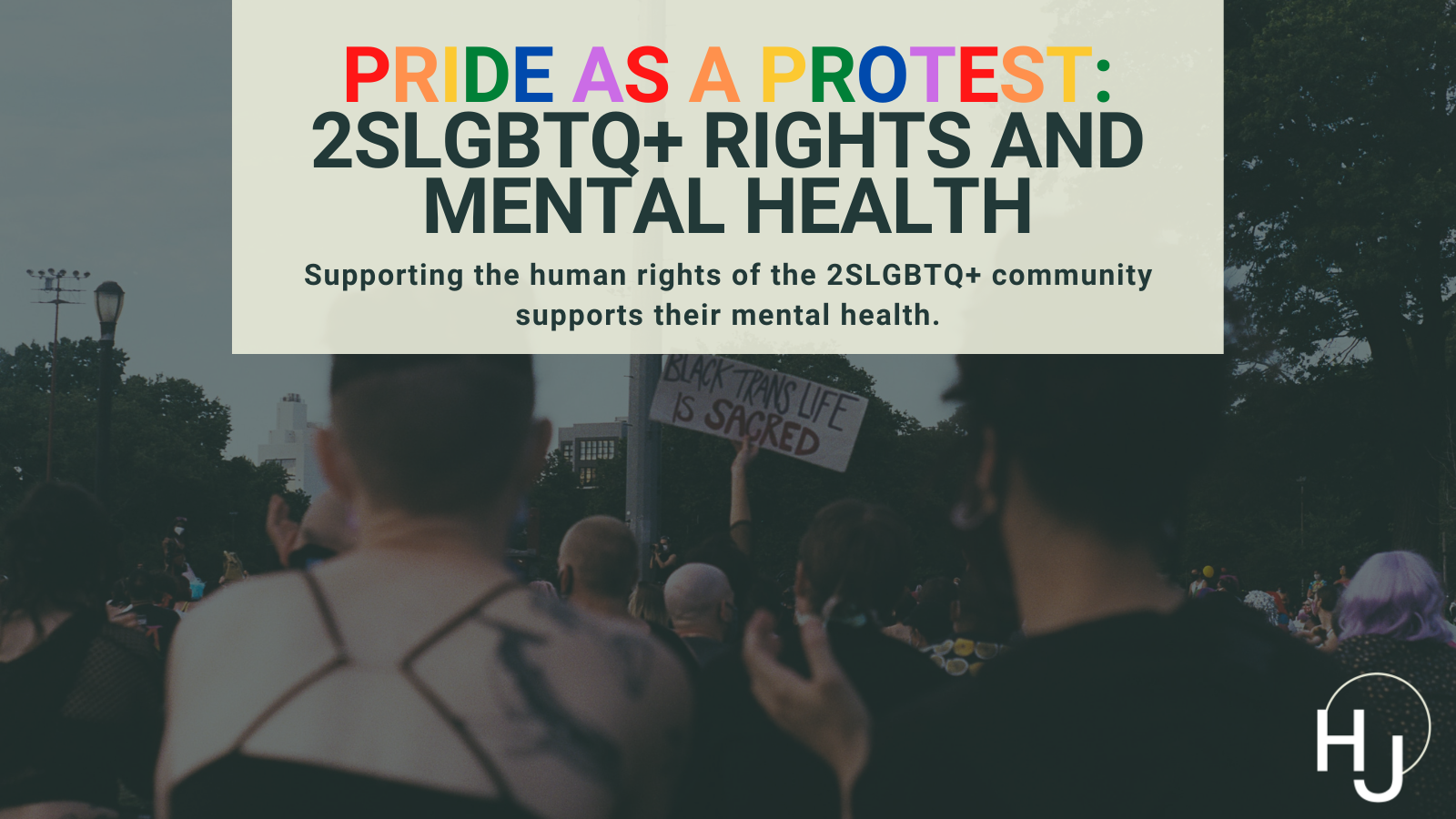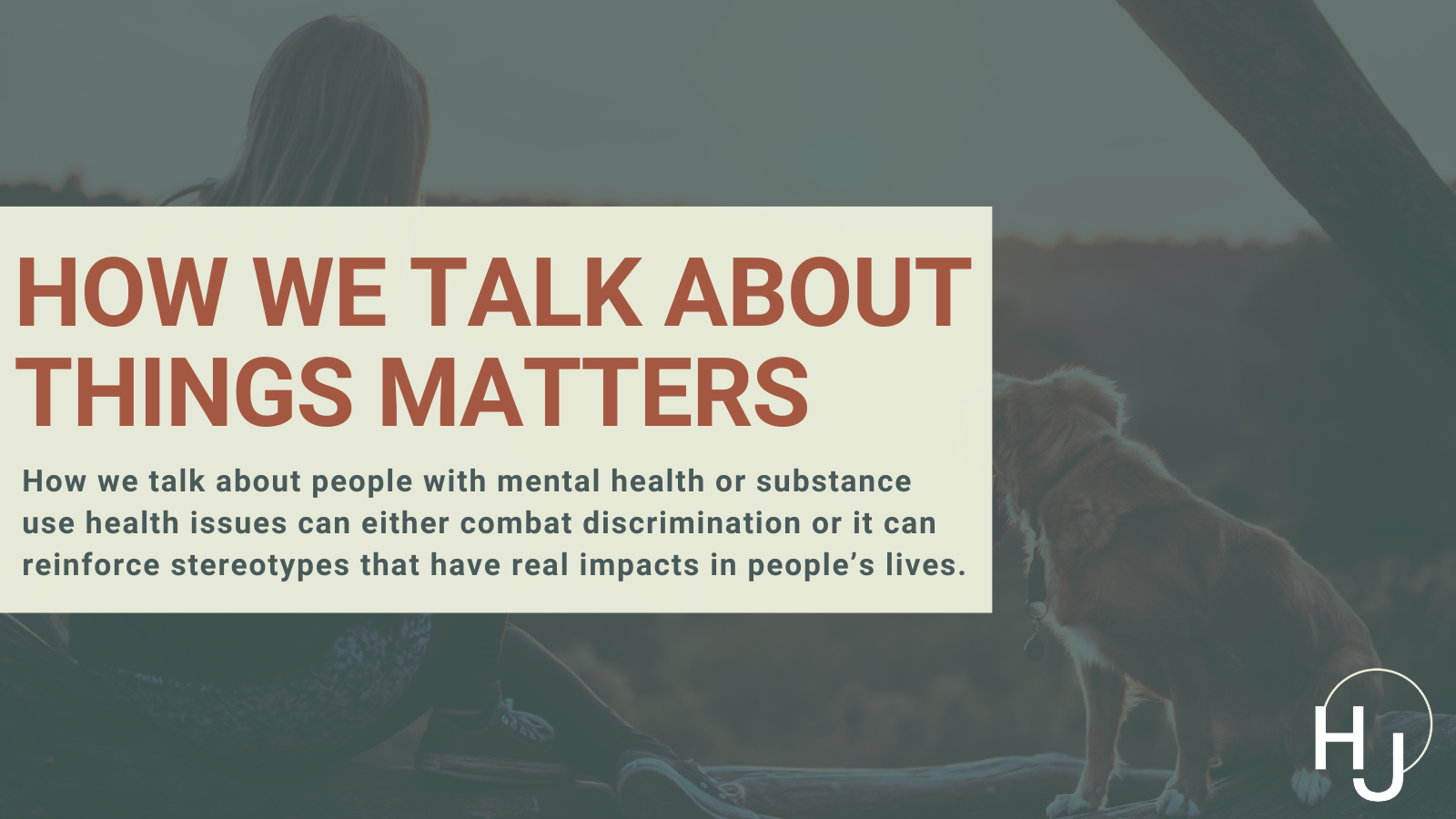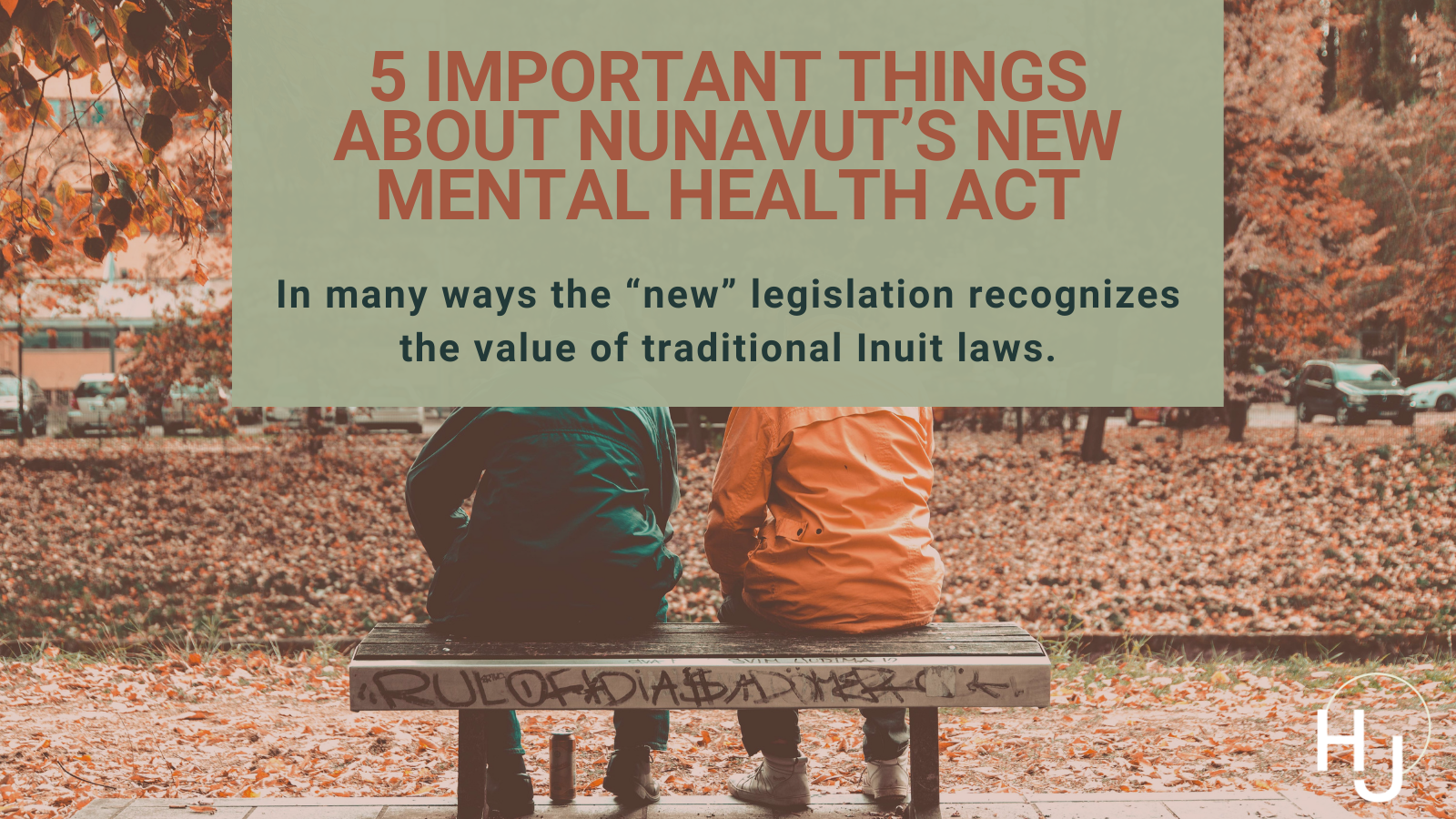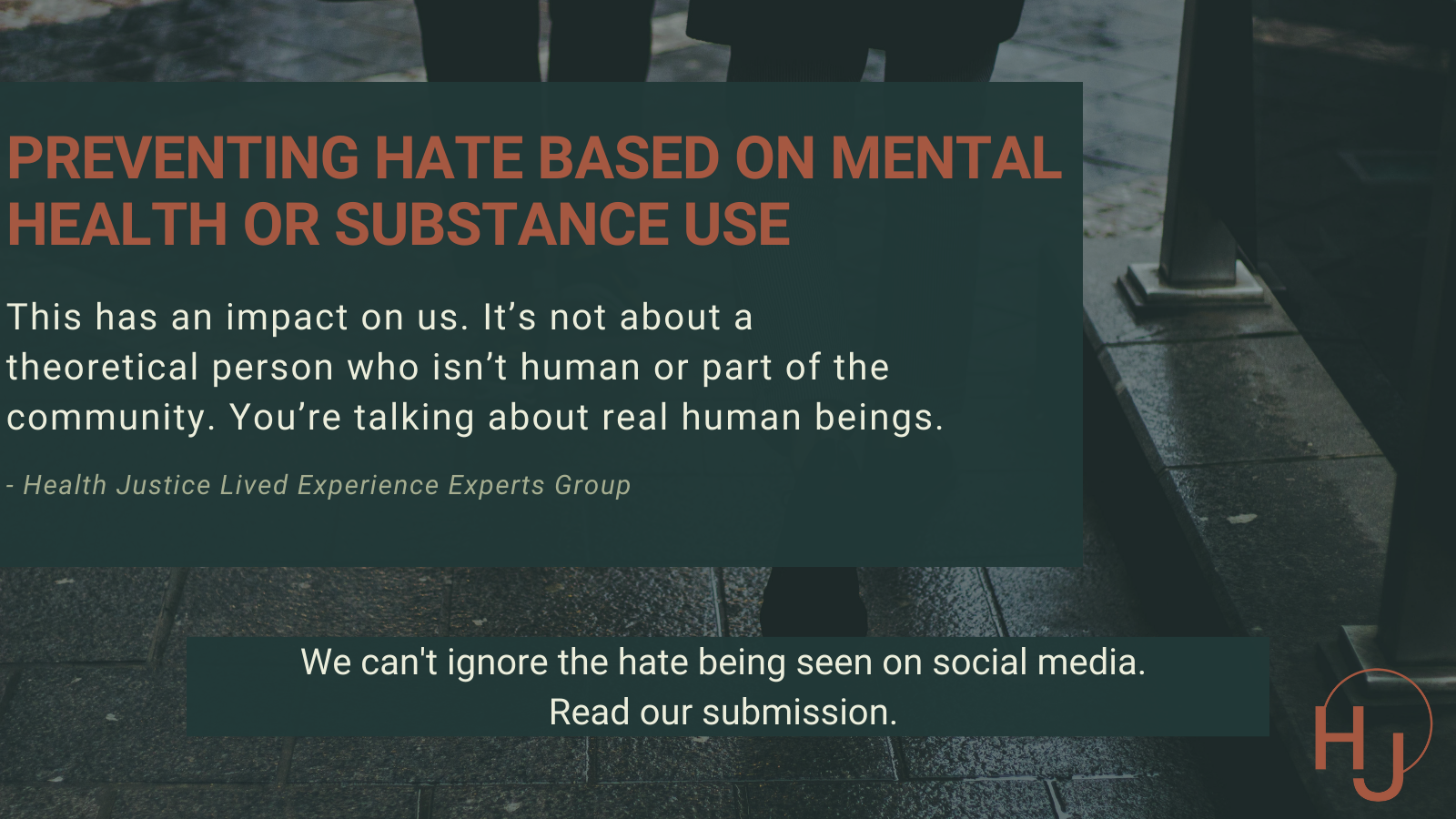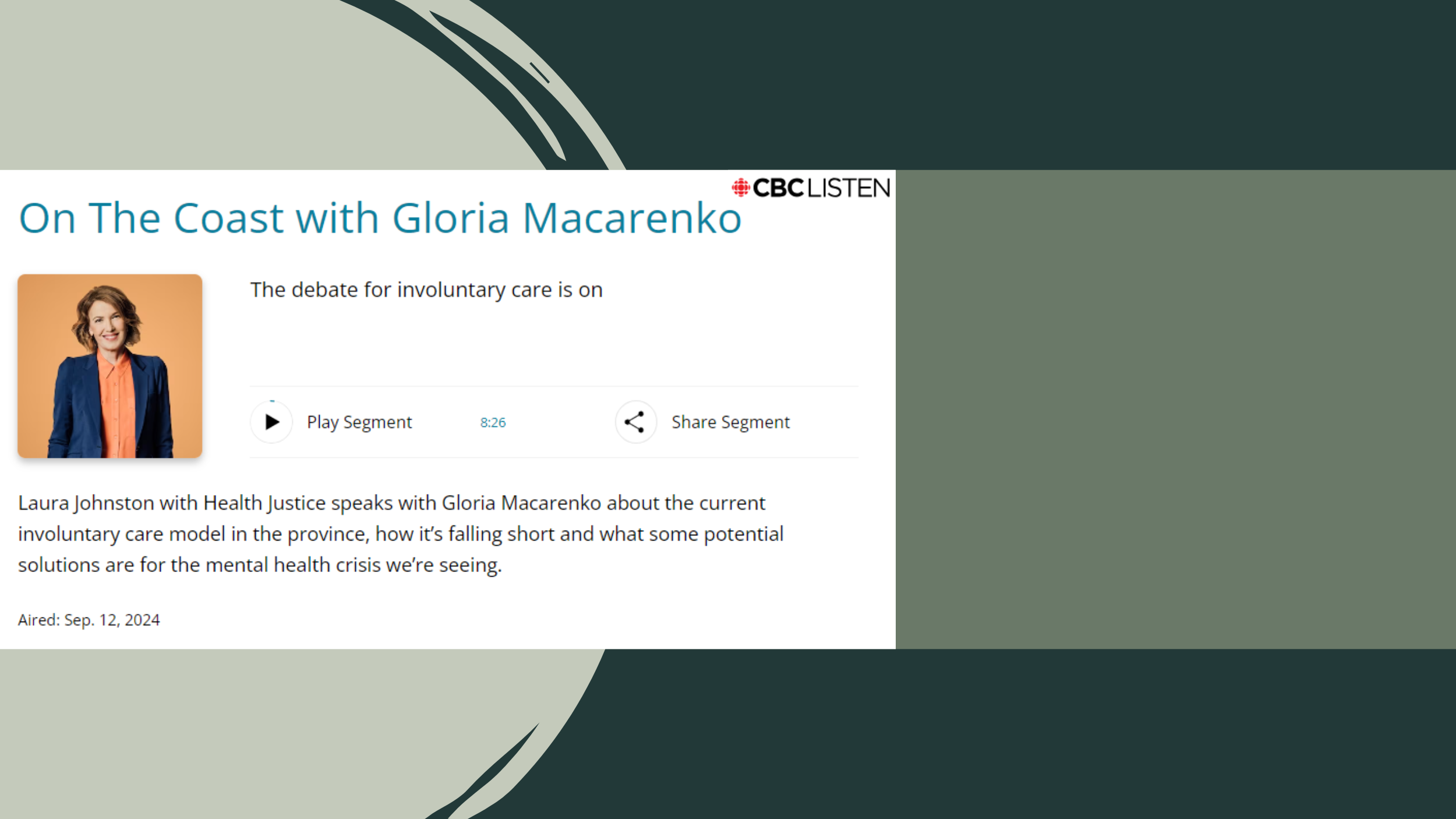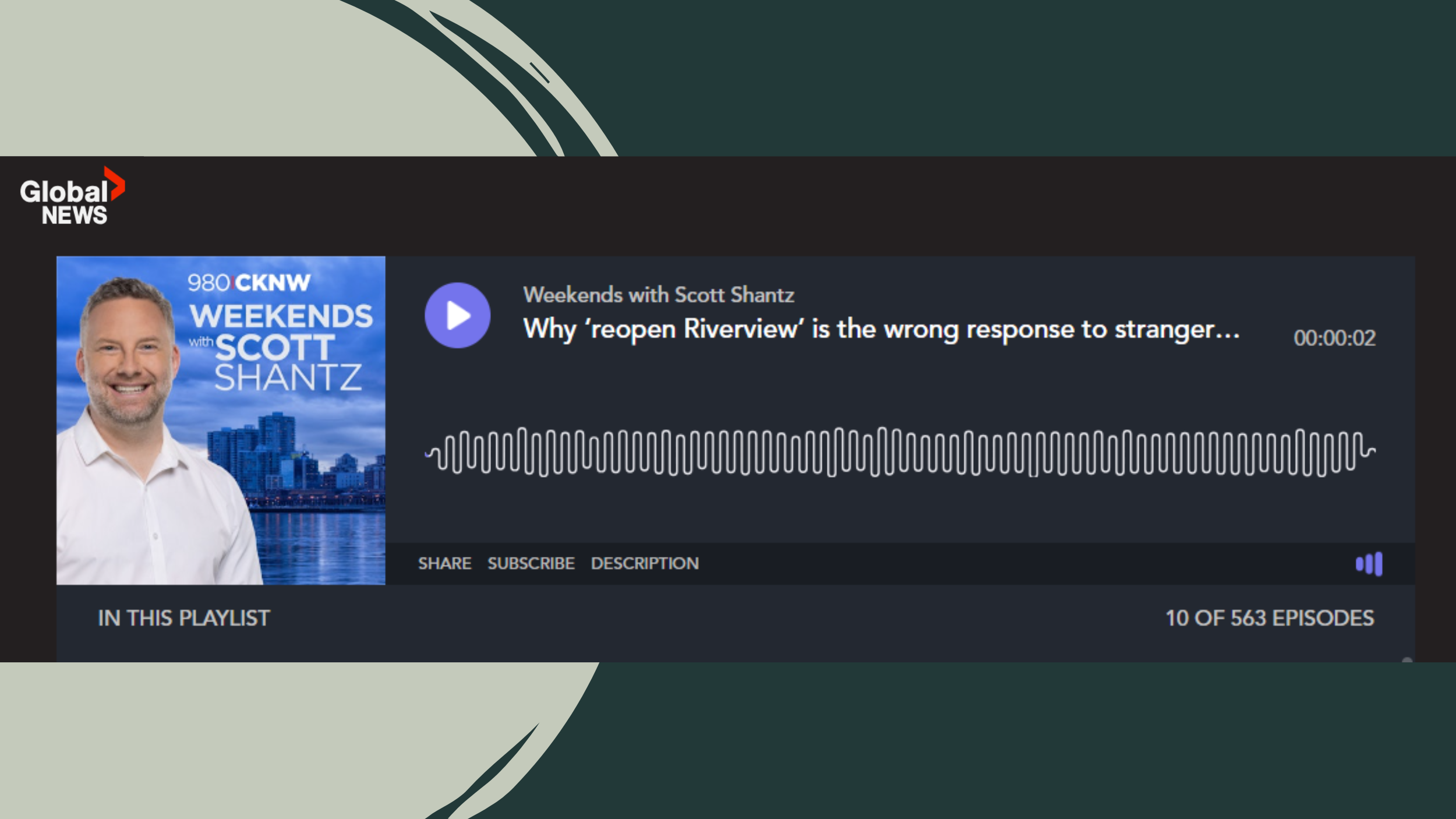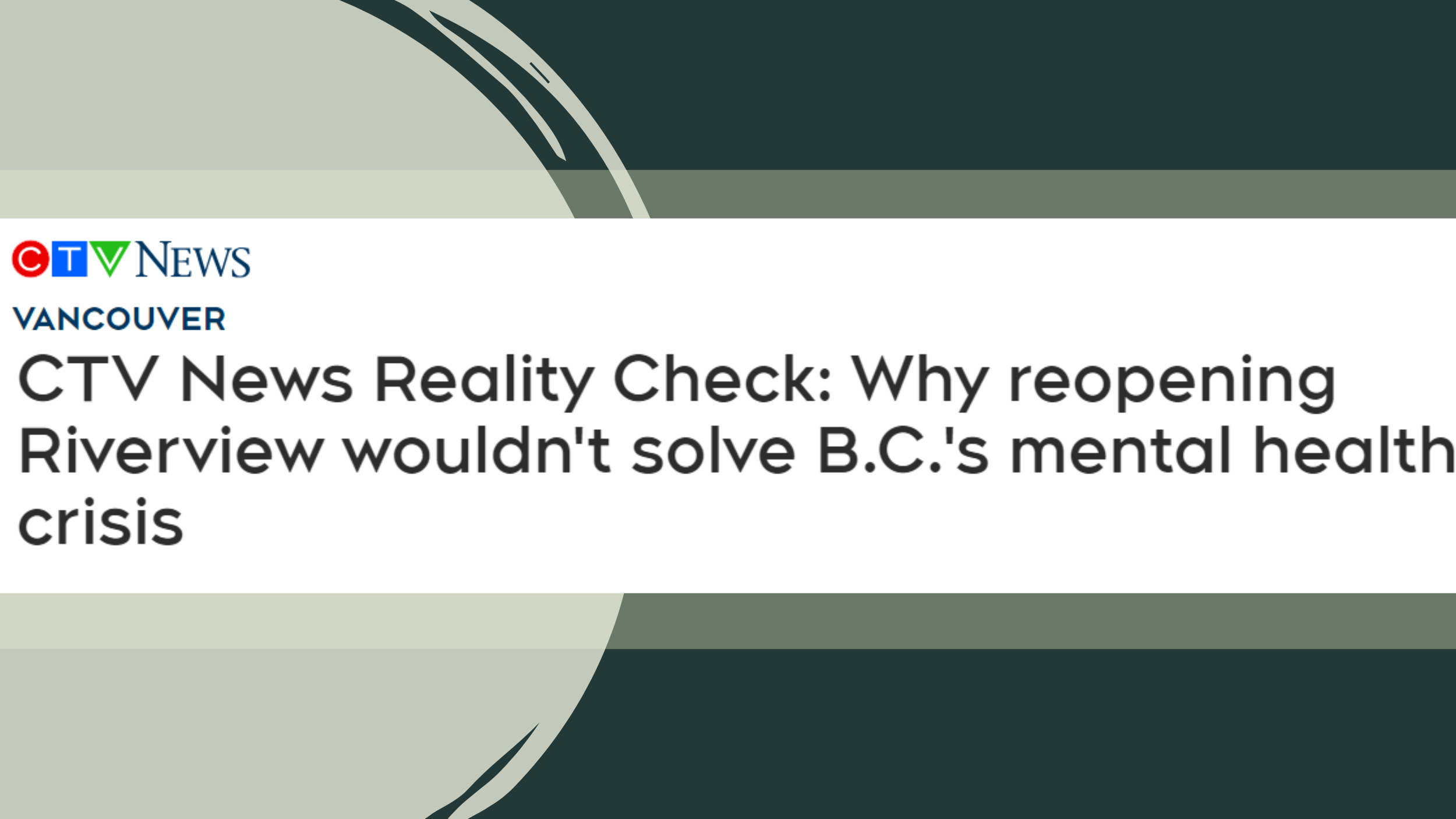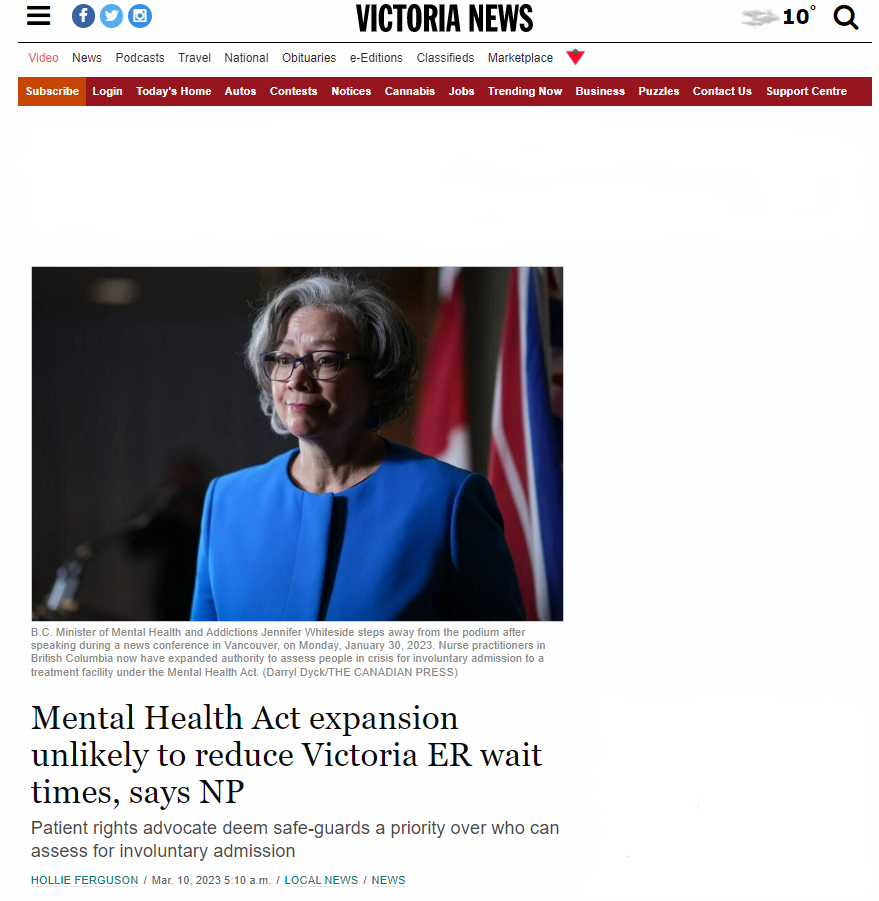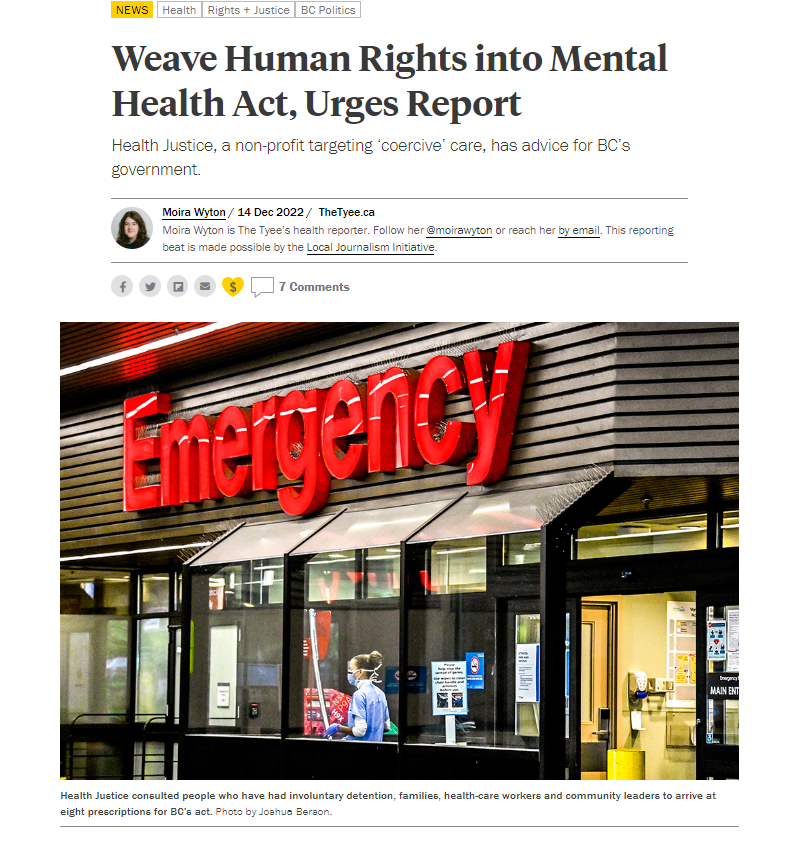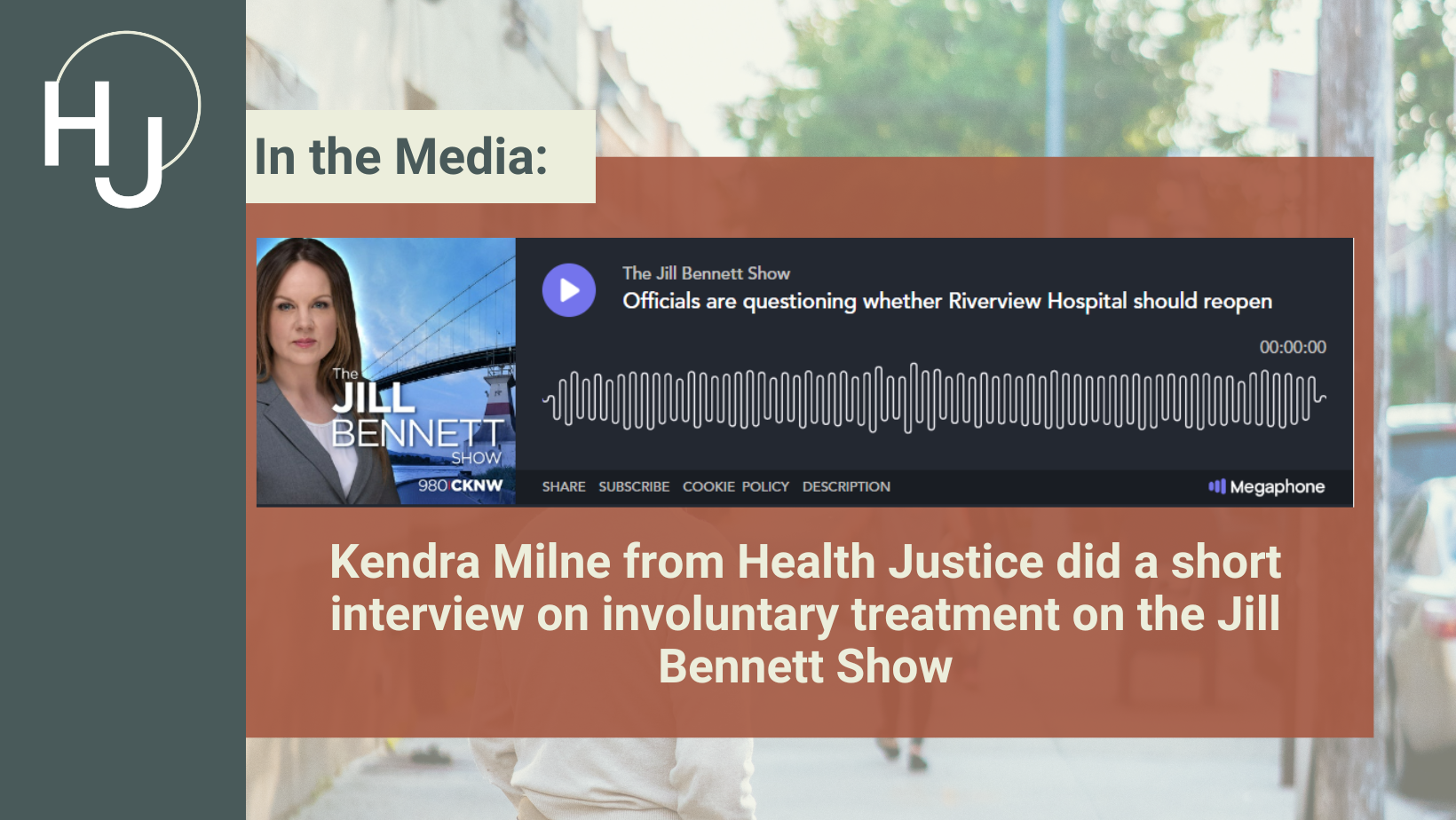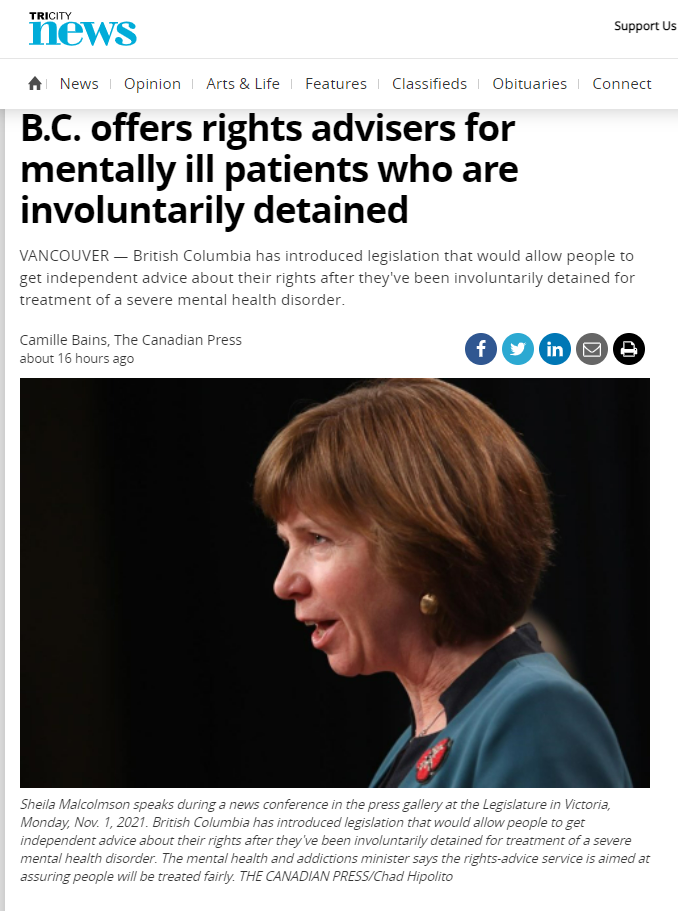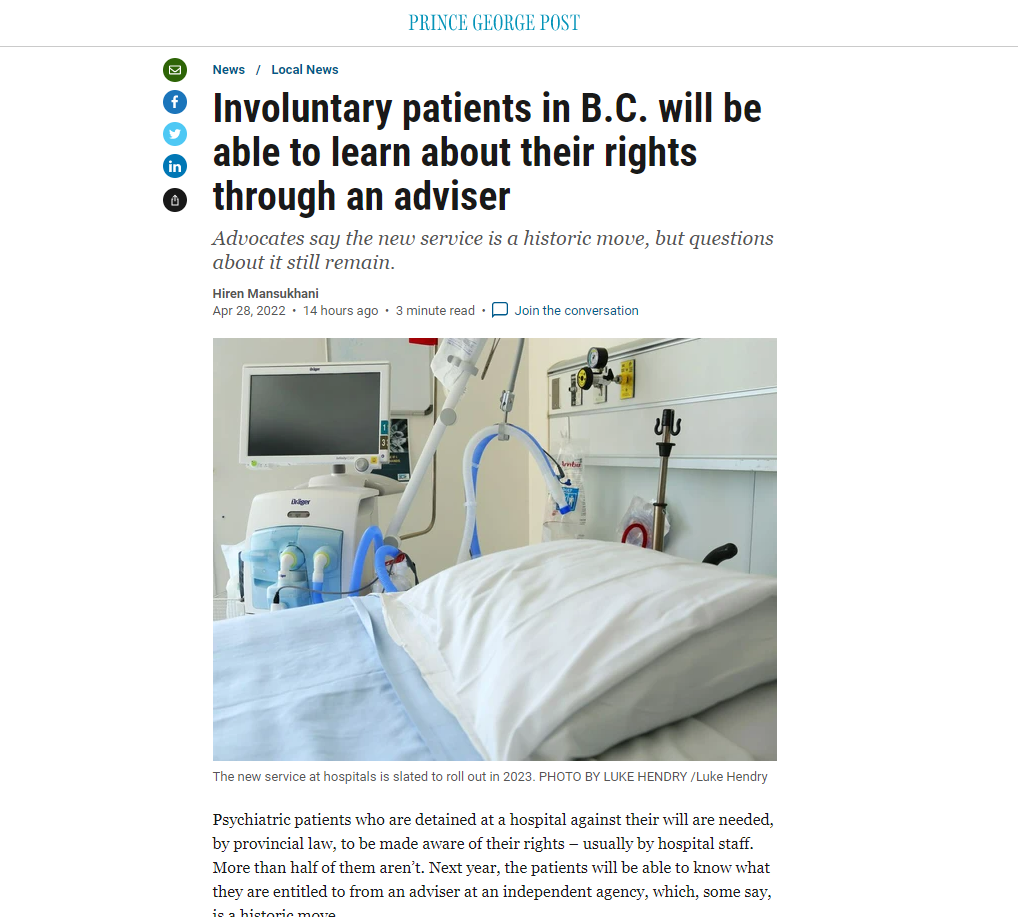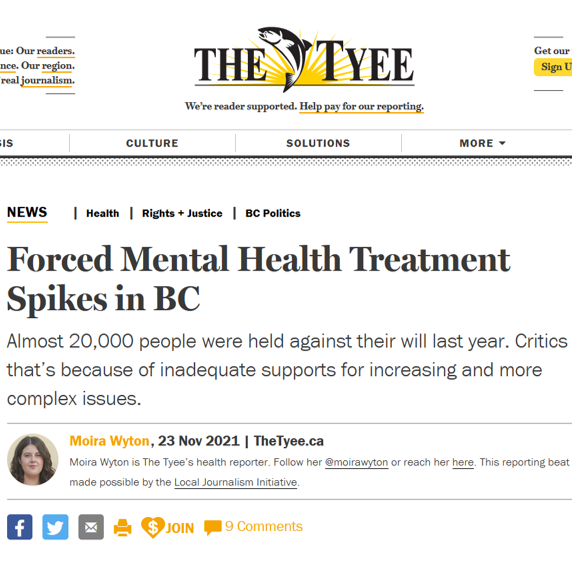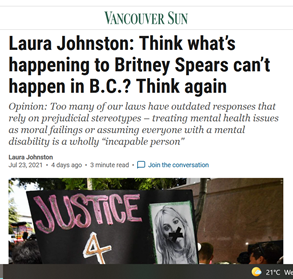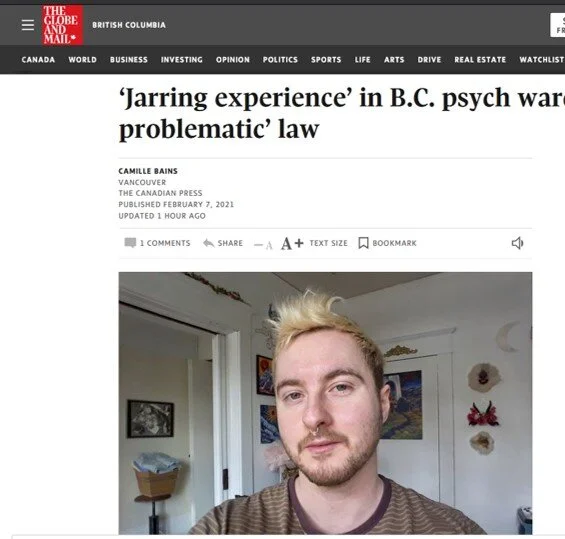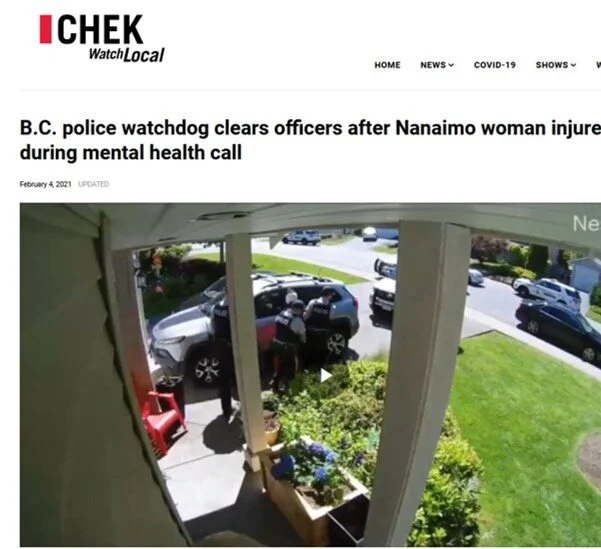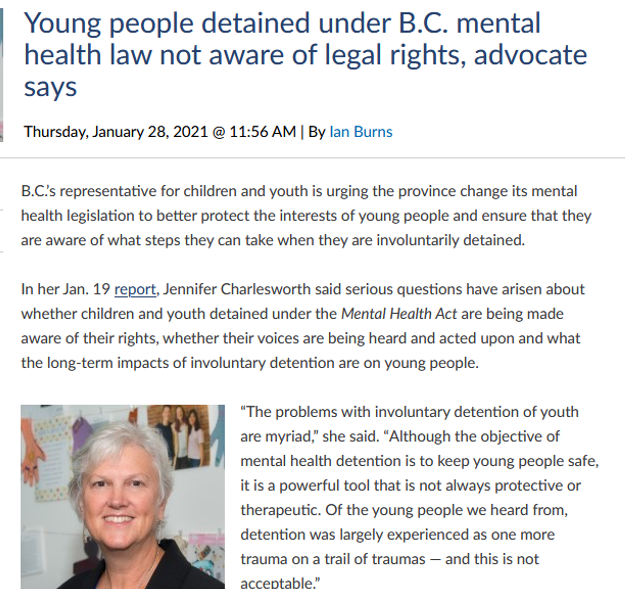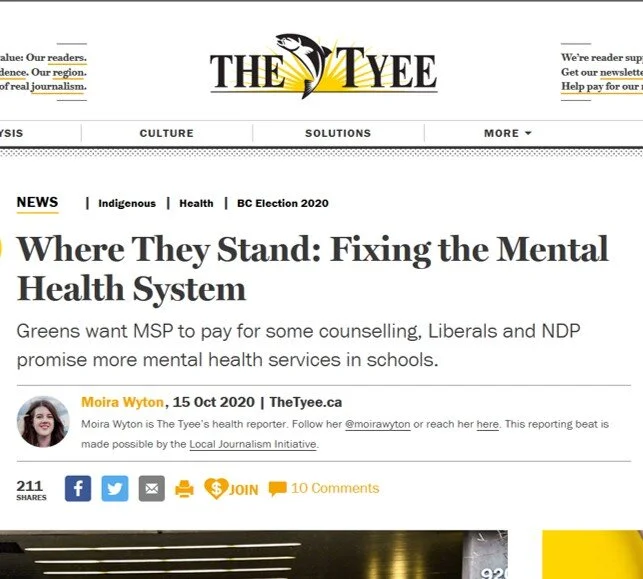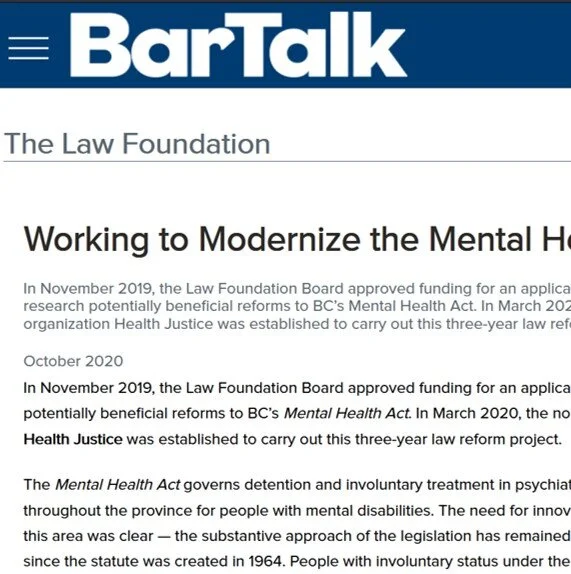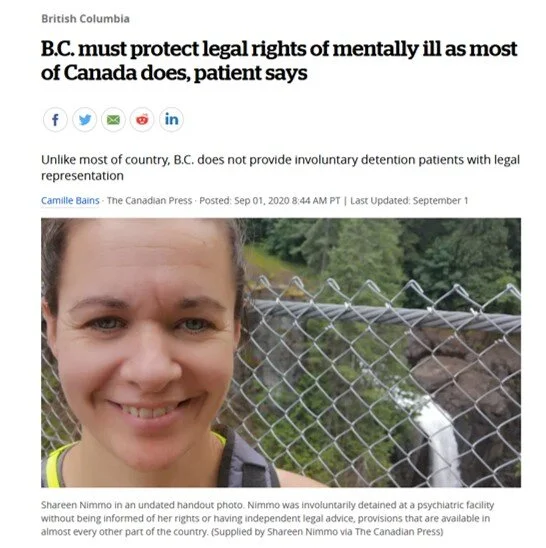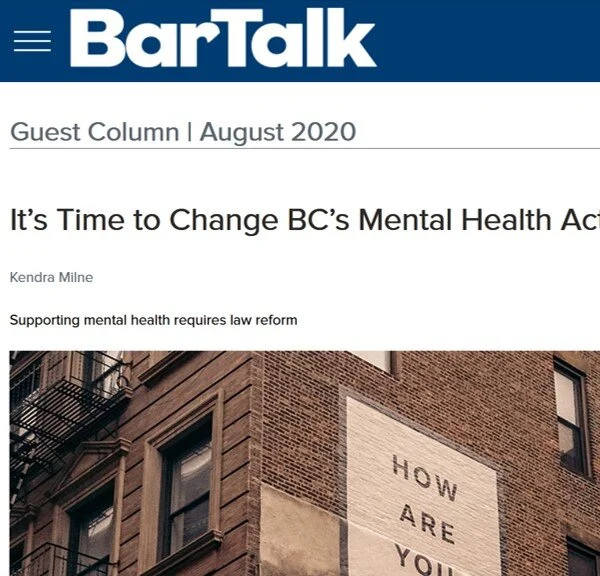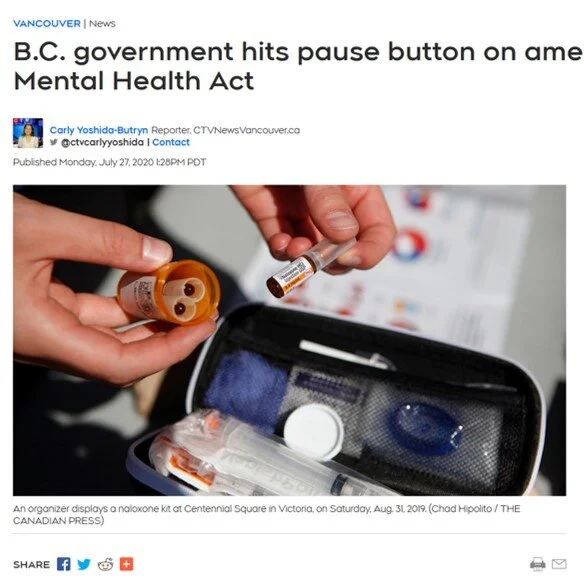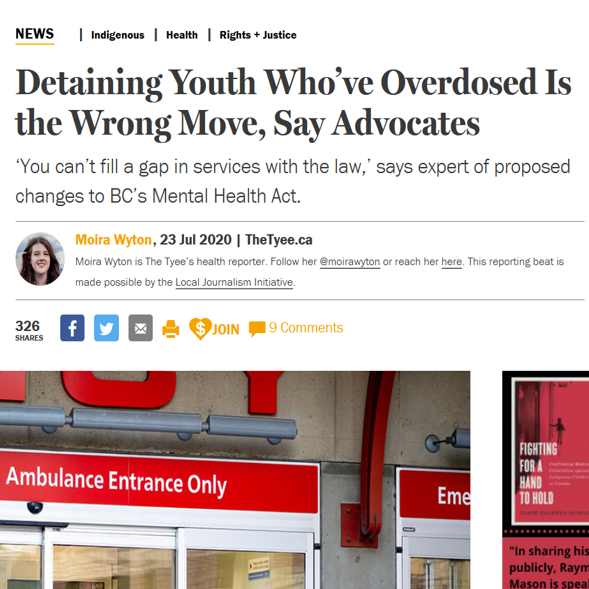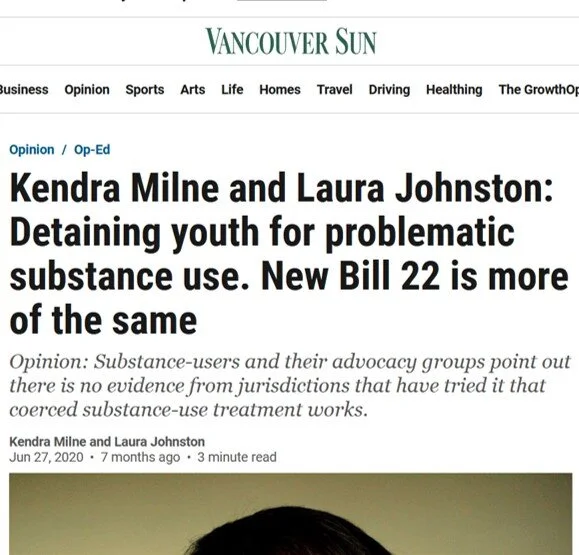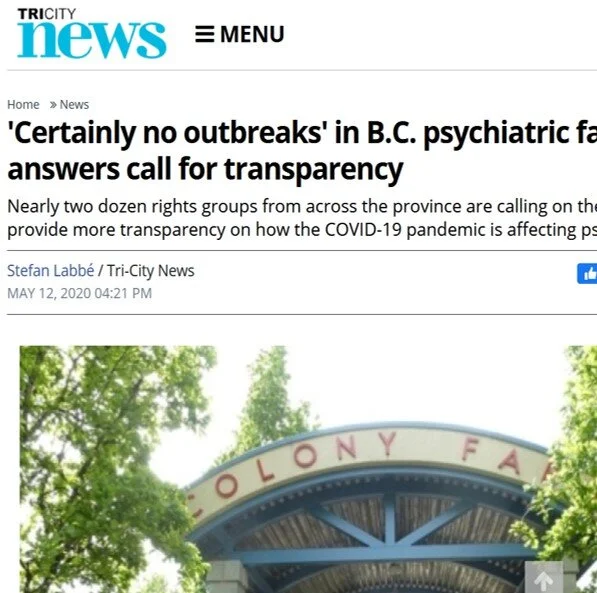
Blog & Media Coverage
Search the blog using the search bar below.
Latest Blog Posts
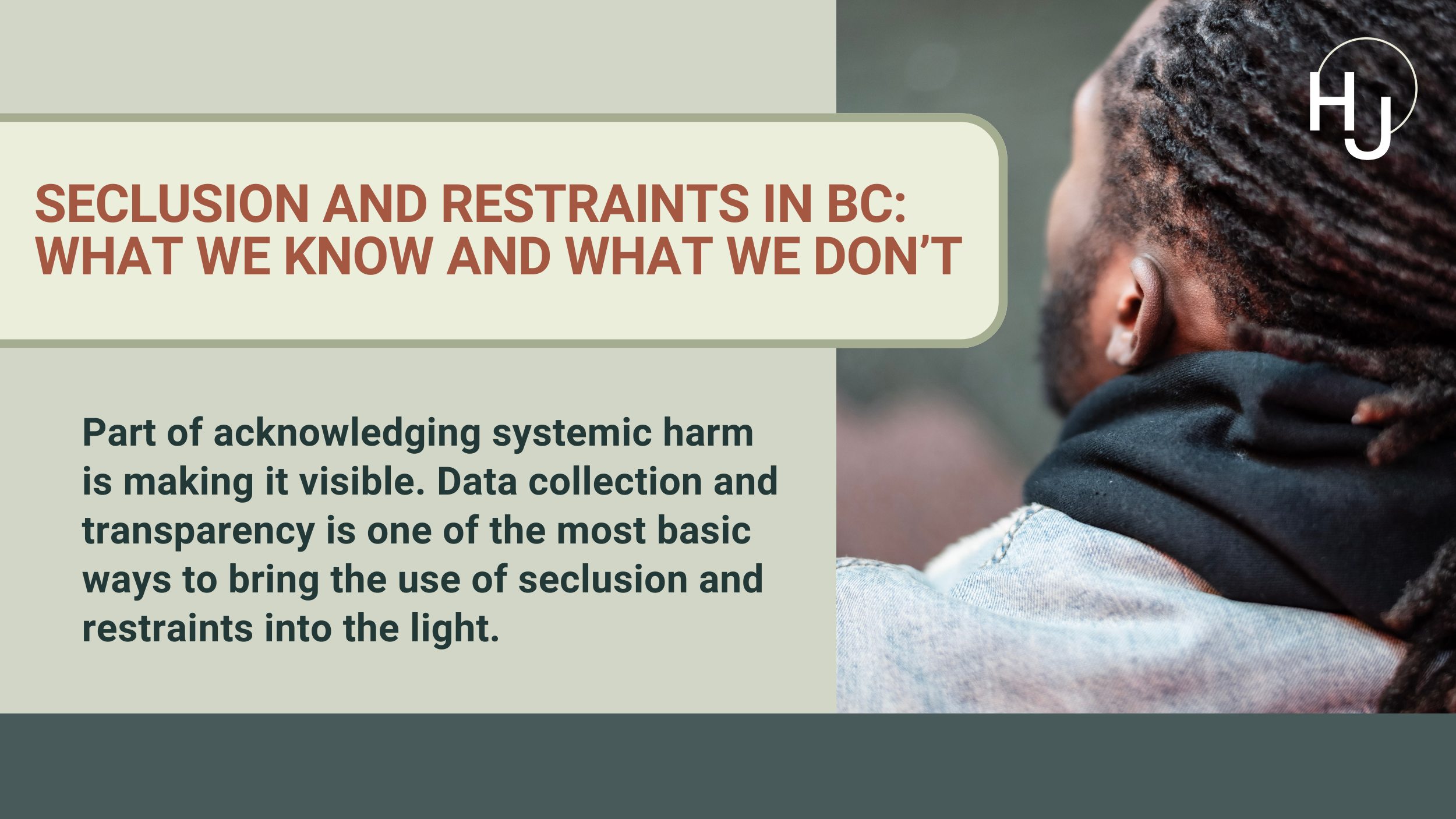
Seclusion and Restraints in BC: What we know and what we don’t
The use of seclusion and restraints is normalized in BC’s mental health system. BC’s Mental Health Act does not place any limits on when, how, or why someone can be subject to seclusion or restraints. Lived Experience Experts have shared that seclusion is often used in situations well outside those that could be considered a short-term emergency measure. We have gotten access to data on seclusion and restraint use through a Freedom of Information (FOI) request submitted in 2023. Part of acknowledging systemic harm is making it visible. Data collection and transparency is one of the most basic ways to bring the use of seclusion and restraints into the light. It is a necessary first step towards evaluating a system with few limitations and safeguards.
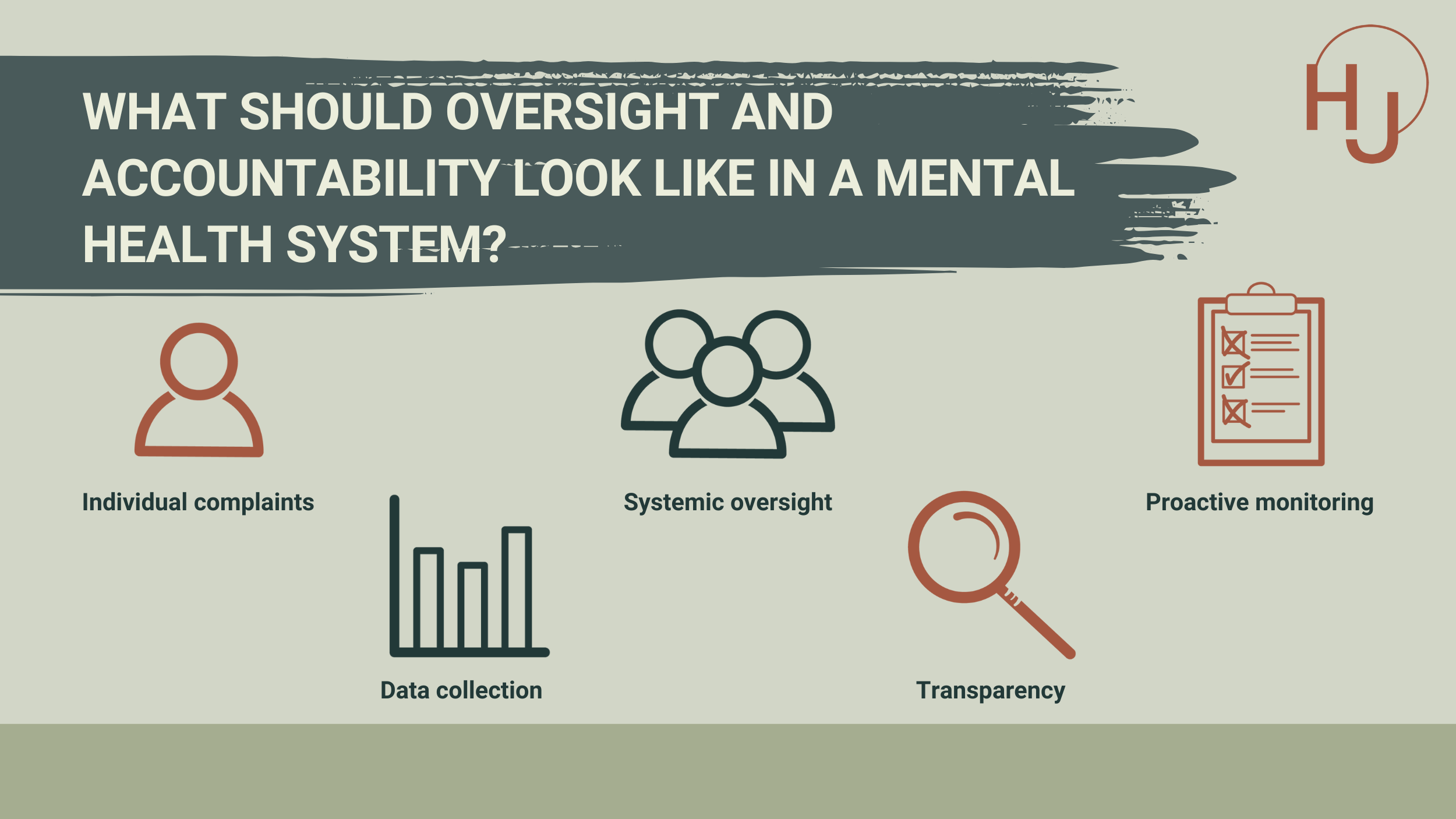
What should oversight and accountability look like in a mental health system?
Regardless of what your opinion is on the effectiveness and ethics of involuntary treatment, any law that authorizes serious powers over people must be accompanied by accountability and oversight of those powers. When someone experiences detention and involuntary treatment, we need ways to be sure they will be treated with respect and dignity and that there are ways to address improper use of power.
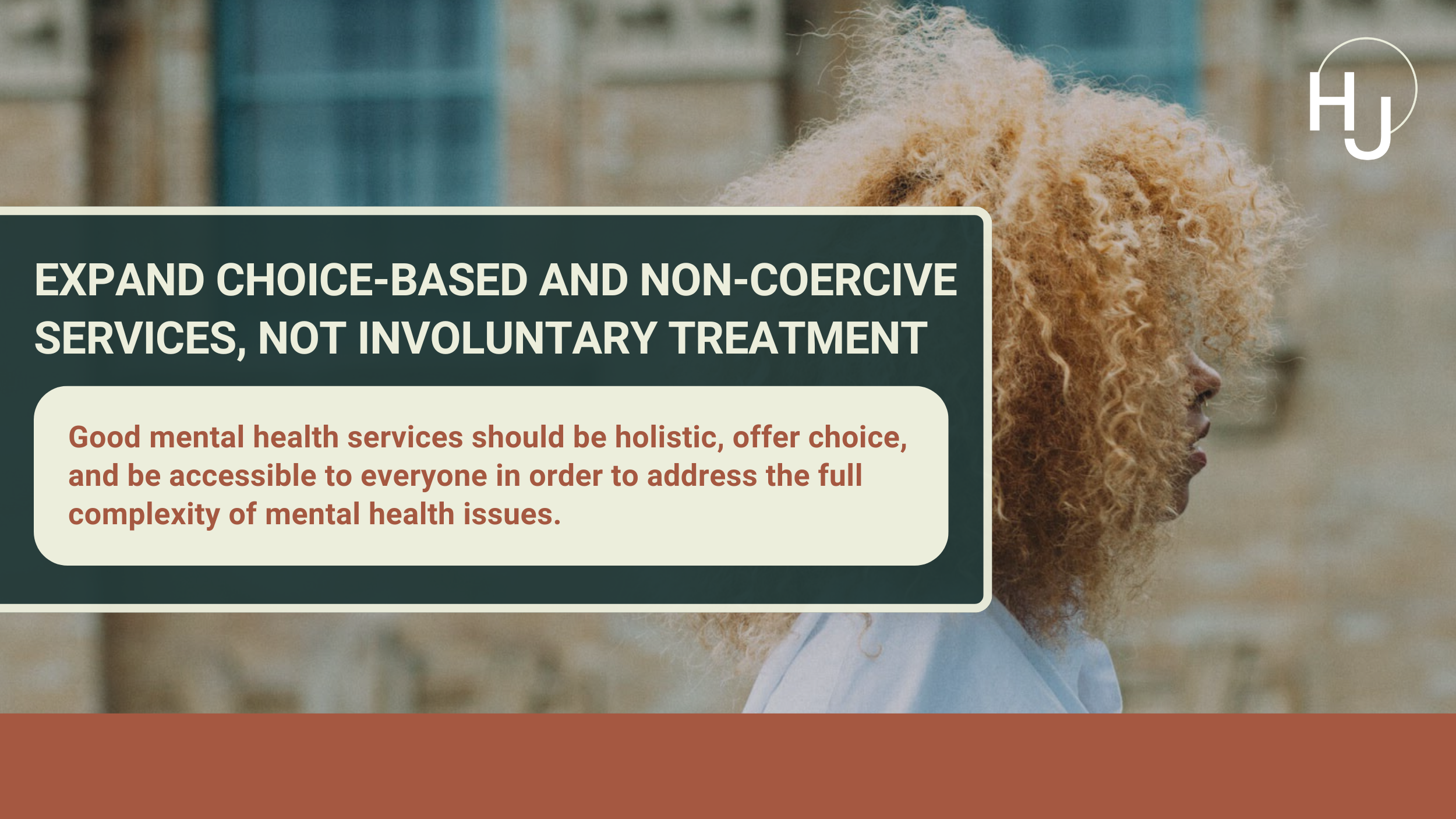
Expand choice-based and non-coercive services, not involuntary treatment
Conversations about involuntary treatment must address its consequences: people are afraid and discouraged from seeking help from the system because of the harm it can cause. To build trust in the system, we must take a holistic approach and offer choice so that people can choose interventions that work for them. Involuntary treatment should be a last resort.
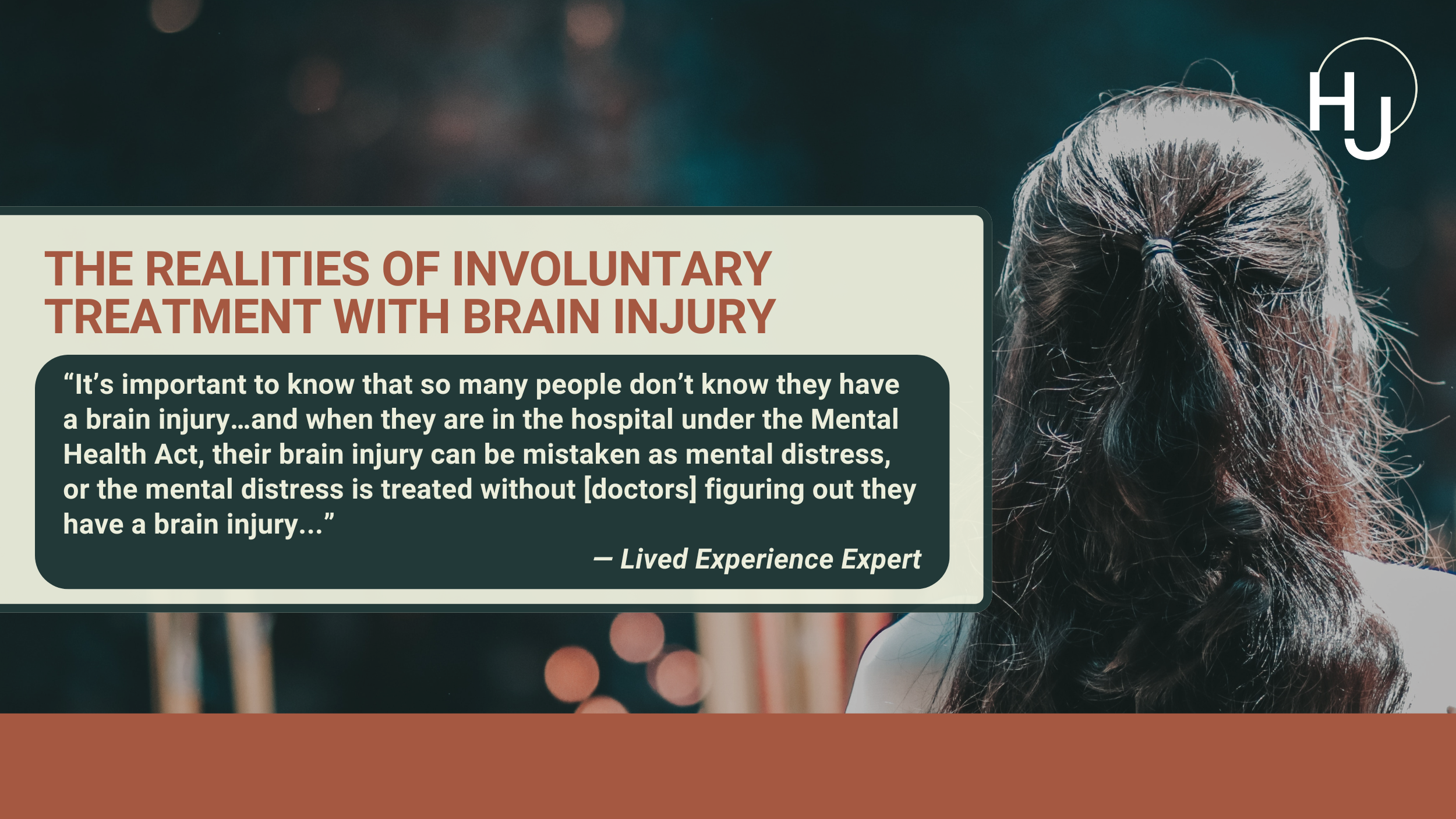
The Realities of Involuntary Treatment with Brain Injury
The lack of awareness and focus on brain injuries while in involuntary treatment by medical practitioners, including those in mental health, and by policy makers and legislative decision makers undermines the care that people with brain injuries need by jeopardizing their health further and violating human rights. The information graciously shared here is from a Lived Experience Expert that has been actively involved in brain injury awareness, research, community care, advocacy in BC, and navigation of their own medical journey. Learn more about what is missing in the care of someone with a brain injury, its impacts, and what is needed to improve care.
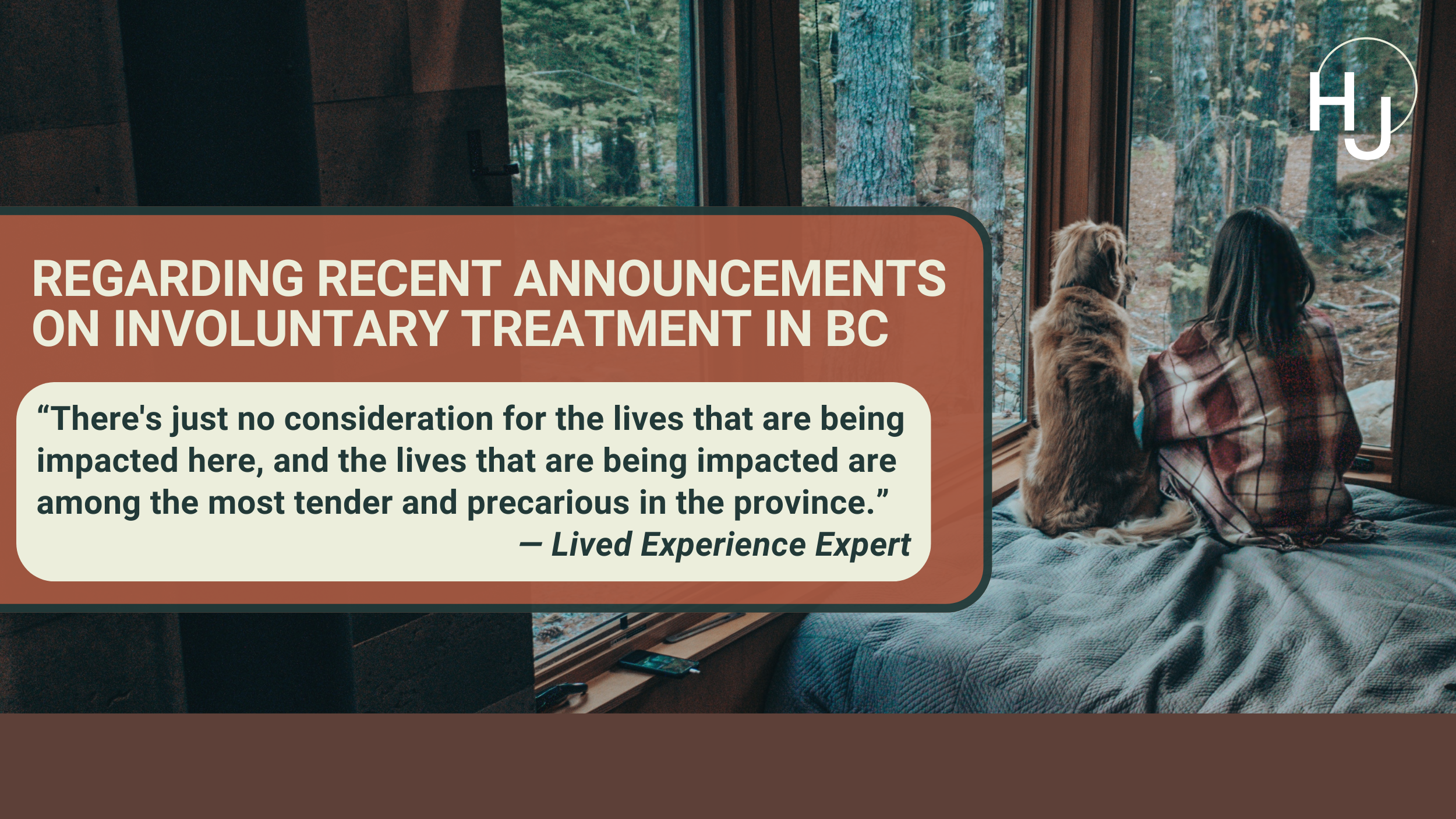
Regarding recent announcements on involuntary treatment in BC
Regarding the recent announcements on involuntary treatment in BC, people with disabilities and mental health and substance use health issues are being used for political football. These recent debates on involuntary treatment have been intensely political, partisan, and rely on old tactics: ramping up public fear, dehumanizing some members of the public, and doubling down on stereotypes.
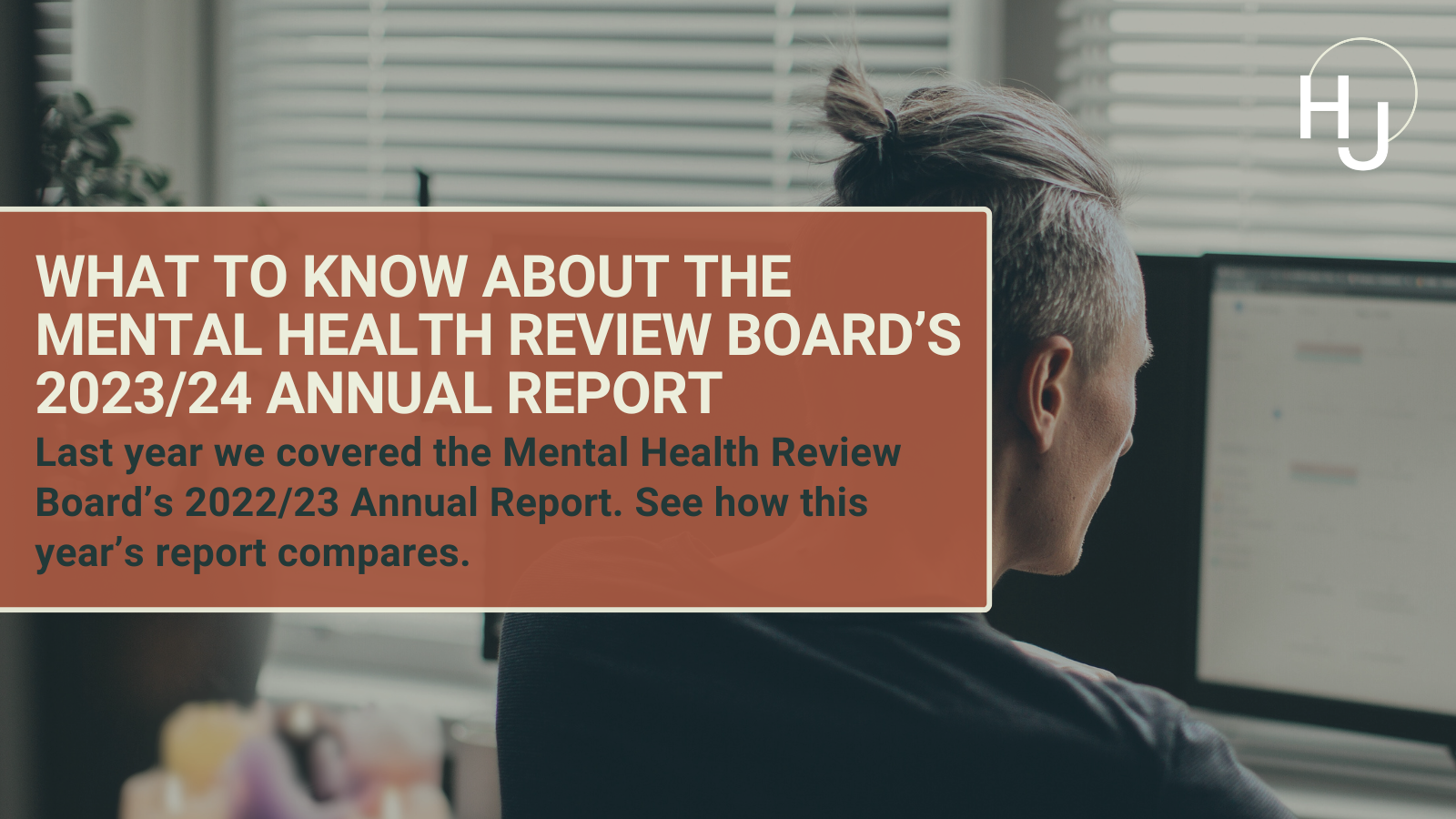
What to Know about the Mental Health Review Board’s 2023/24 Annual Report
The Mental Health Review Board recently released its 2023/24 Annual Report, which provides us with some insights into how people detained under the Mental Health Act are accessing detention reviews. Last year we highlighted that applications and review panel hearings unfortunately went down, but the good news was that fewer patients were conducting hearings without legal representation. Let’s look at how the latest numbers compare.
Featured Blog Posts
Collecting and having access to transparent data when considering who experiences involuntary treatment is not only useful in seeing the impacts and any potentially harmful trends in order to be able to address them, but also it is an incredibly important tool in combatting common misconceptions about those who are involuntarily treated. An absence of information can contribute to leaving space for people to perpetuate harmful stereotypes and hold damaging ideas of those who are being involuntarily treated. It can also create space for those in power to play off of people’s fears that are based in misconceptions instead of reality, leading to decisions being made without consulting people with lived experience expertise who are impacted by those decisions.
Despite what many may think due to the recent spotlight on the expansion of involuntary treatment in British Columbia, involuntary treatment for substance use already happens in B.C. Given these discussions about expanding involuntary treatment in B.C. and in other parts of Canada, it is crucial to examine the human rights violations within the existing involuntary treatment system, the lack of evidence to support its effectiveness and the potential harms and ethical concerns.
UNDRIP is not a magic bullet that will dismantle centuries of colonization and genocide, but it is an important tool that helps provide a baseline for the implementation of Indigenous rights in a meaningful way. When combined with the implementation of other human rights-based principles, BC can create a baseline for a mental health law that protects human rights and wellness for Indigenous people.
The lack of awareness and focus on brain injuries while in involuntary treatment by medical practitioners, including those in mental health, and by policy makers and legislative decision makers undermines the care that people with brain injuries need by jeopardizing their health further and violating human rights. The information graciously shared here is from a Lived Experience Expert that has been actively involved in brain injury awareness, research, community care, advocacy in BC, and navigation of their own medical journey. Learn more about what is missing in the care of someone with a brain injury, its impacts, and what is needed to improve care.
Current mainstream conceptions of mental health and mental health treatment have roots in colonialism, and those roots shape mental health services today. Yet, in the face of genocide, colonization, and racism, First Nations, Métis, and Inuit people have and continue to resist the systemic suppression of Indigenous community and centre understandings of health and wellbeing.
The Mental Health Review Board recently released its 2023/24 Annual Report, which provides us with some insights into how people detained under the Mental Health Act are accessing detention reviews. Last year we highlighted that applications and review panel hearings unfortunately went down, but the good news was that fewer patients were conducting hearings without legal representation. Let’s look at how the latest numbers compare.
When basic rights are not respected, it has a negative impact on our overall health, including our mental health. Adequate safe and accessible mental health services, law, and policy are necessary to avoid human rights violations for someone with a mental health or substance use-related disability.
Guiding principles can help build a mental health and substance use health system that respects and supports human rights. This is something desperately needed in BC’s mental health system in order to support wellbeing.
The Mental Health Review Board recently released its 2022/23 Annual Report, which gives us insights into how people detained under the Mental Health Act are getting access to detention review. We’ve summarized 3 important things to know about this report.
It’s time to consider whether BC’s approach to mental health and substance use services, and not individuals, may be causing the unmet health needs visible in communities in the province. We have compelling evidence to show that the system itself doesn’t always help.
In February changes quietly showed up in the Mental Health Act and Form 4 – the form used to involuntarily admit and detain someone under the Act. Until recently, a physician was required to do an examination to consider whether an individual meets the legal criteria for involuntary admission and complete the Form 4 to record the reasons for the decision.
The Government of Canada recently introduced legislation that would pause the legal expansion of Medical Assistance in Dying (MAiD) to people whose sole underlying condition is a mental illness that was due to come into effect on March 17, 2023. This expansion would be delayed until March 17, 2024 if the legislation passes…
Mental health laws don’t impact all people and communities in the same way. Experiences under BC’s Mental Health Act vary greatly depending on a person’s identity and how individual facility staff or physicians understand the Act and what it authorizes. This is why intersectional equity needs to be an express priority in BC’s mental health law.
An edited version of this story first appeared in Transition magazine under a different title. This is a story about the importance of self-determination in mental health law and services written by someone with lived experience.
In BC, allowing MAID for mental illness is essentially offering people two choices: They can choose to live in the context of a mental health and social system that does not allow them to meet their basic needs…or, they can choose to die.
Colonialism has interrupted ways of sharing knowledge, families, communities, cultural land-based practices, and languages, all of which are important for health and wellness. There is no shortage of recommendations and guidance on what we need to do to support reconciliation related to health; we need to take action to implement them.
Recent calls for additional powers authorizing mandatory treatment after drug poisonings/overdoses raise a question: how is BC’s current involuntary treatment system working?
On June 23, 2022, the Supreme Court of Canada made an important decision in the years long constitutional case about BC’s mental health law. Originally filed in 2016, it’s the first case in decades that could provide guidance on whether BC’s Mental Health Act and related laws comply with the Canadian Charter of Rights and Freedoms.
Pride is a time to celebrate. It’s also a month where we remember the heart of Pride, which is Pride as a protest. It’s important to acknowledge that for many, especially those who inhabit intersecting marginalized identities within 2SLGBTQ+, Pride never stopped being about protest. Hate and discrimination that 2SLGBTQ+ people have faced negatively impacts their mental health and well-being. It also negatively impacts the structure of services that are designed to respond. There are ways we can change this.
How we talk about people with mental health or substance use health issues can either combat discrimination or it can reinforce stereotypes that have real impacts in people’s lives. Here are some ways to reduce stigma around mental health and substance use by challenging these ideas through how we think and what we say.
On April 28, 2022 the BC Attorney General introduced Bill 23 – 2022, MENTAL HEALTH AMENDMENT ACT, 2022. Bill 23 proposes changes to the Mental Health Act to establish an independent rights advice service for people detained and being administered involuntary treatment.
The Nunavut legislature recently passed new mental health legislation with many promising changes, including clear recognition in the law of Inuit-based approaches. The new Mental Health Act has been described by Nunavut MLAs as a welcome replacement to old legislation, parts of which dated back to the 1960s.
Health Justice has made a submission to the BC Human Rights Commissioner’s inquiry into hate incidents during the COVID-19 pandemic. Below is a quick introduction to the submission that has been taken from the submission itself.
Access to Justice Week was created to provide “information and learning opportunities about the access to justice crisis in BC.” While it primarily acts to inform and engage law students and legal professionals, it is also a helpful way to inform the public about the ongoing access to justice crisis in BC and provide opportunities to discuss solutions.
Media Coverage
With the rise in calls for increased involuntary treatment, it's important to consider that other solutions might be needed.
"We have the highest rates in Canada, here in BC, of hospitalizing people for mental health and substance use treatments. We already involuntarily treat a lot of people and it might be worth pausing and asking; is doubling down on something we’ve already been trying for several years, going to be helpful?"
Following a recent attack in Vancouver, there have been calls to reopen Riverview as a simple response to a very complex issue. Kendra Milne of Health Justice breaks down why a simple solution isn’t the way to go on Weekends with Scott Shantz.
With calls for Riverview to reopen being revitalized in the media leading up to the upcoming election in BC, it's important to consider what experts have to say on this proposed "solution" that may not actually be the solution people are looking for.
Patient rights advocate deem safe-guards a priority over who can assess for involuntary admission
Enshrining human rights in British Columbia’s Mental Health Act should be a priority to improve outcomes for the rising number of people treated involuntarily for mental health and substance use, says an advocacy group
On August 11, Kendra from Health Justice did an interview on the Jill Bennett Show about involuntary treatment and mental health.

